|
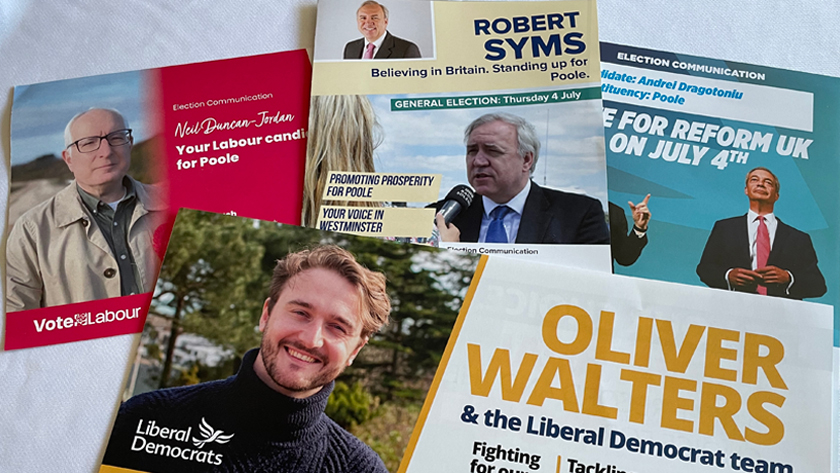
AR
UK general election: Party leaflets for Poole constituency
|
|

HIP
Defending Taiwan
|
|
2024 June 30
The Taiwan Tangle
Ian Buruma
Taiwan could spark a major war during a second Trump administration. MAGA isolationism has always been in tension with Donald Trump's rhetoric and his penchant for making deals with dictators.
People's Republic of China premier Xi Jinping vows to unify the motherland and is prepared to use military force to do so. Taiwan's new president Lai Ching‑te says the Republic of China (Taiwan) and the PRC are not subordinate to each other.
If China were to take Taiwan by force, the consequences could be dire. One way to stop them is to build a system of military deterrence. Taiwan and Japan would need a new military culture. Japan would need to rewrite the pacifist constitution it was given by Americans in 1947.
Premier Xi claims that Taiwan was always part of China. But Austronesian tribes lived on the island until the Dutch colonized it and imported workers from China. The Dutch were ousted in 1662 by a local warlord who ruled until 1683, when the island was taken into the Qing empire.
From 1895 to 1945, Taiwan was a Japanese colony. President Roosevelt had promised to hand over Taiwan to Chiang Kai‑shek, but in 1949, Chiang's Nationalists were defeated by Mao Zedong's Communists. The Generalissimo retreated to Taiwan and made it his fortress.
In 1972, Richard Nixon and Henry Kissinger agreed with the Chinese premier Zhou Enlai that there was only one China and that Taiwan was a part of it. The first democratically elected president of Taiwan, Lee Teng‑hui, said Taiwan would join China, but only once China became a democracy.
For the United States, Taiwanese democracy was awkward. Washington sought both to defend democratic Taiwan and to reassure Beijing that Taiwanese independence would be resisted, an incoherent policy. The United States has no treaty obligation to defend Taiwan.
Premier Xi aims to restore the borders of the Qing empire, by force if need be. Trump America may act tough on China by defending Taiwan. Avoiding war will take diplomatic finesse.
AR In this delicate game of diplomatic poker, the Joker is Trump. The consequences of clumsy play here are incalculably bad, so let's hope the next US secretary of state is a smart operator who can act with the grace needed to ensure the Pacific region lives up to its name.
|
|

HUP
|
|
2024 June 29
Cosmic Connections
Charles Taylor
The Romantics used the symbols and music of poetry to recover human contact with reality. Poetry persuades us through the experience of connection, not through the force of argument. Poetry is incomplete, tentative, and enigmatic, but its insight is too moving to ignore.
How Charles Taylor would heal the ills of modernity
Adam Gopnik
Canadian philosopher Charles Taylor, 92, has published an ambitious study of Romantic poetry and music. His book is also about modern life and its discontents, and how we might transcend them.
As a Catholic and a critic of individualism and secularism, Taylor worries about the modern conception of the self and about the primacy it accords to autonomy, reason, and individual rights. This new self has fractured our sense of belonging and meaning.
When I was a kid, Taylor's rehabilitation of Hegel seemed almost sinister. But Taylor had spent a formative period at Oxford, where he spoke the plainer dialects of Anglo-American philosophy.
Taylor stalks a naturalist view of humanity that assimilates our minds and morals to a purely materialist and empirical program of study. He says we are embodied and embedded in the meanings we jointly create. Art is the means of our connection to the cosmos.
Romantic poetry − the poetry of Shelley and Keats, in English, of Novalis and Hölderlin, in German − diagnosed the fracture and said poetry and music can heal it. The arts help us recall feelings of wholeness. Poetry and music convey an apprehension of cosmic connection.
Taylor challenges the belief that science provides objective truth, and art mere subjective feeling. He says human value is grounded in the experience of art.
The phenomenal field of the arts is the interspace between subjectivity and objectivity. This is where meaning is created. To reduce our experience of sublime music to mood misses the cosmic connection.
The last 50 pages of Cosmic Connections pivot to politics. A successful republic, says Taylor, requires a community of shared purpose and a common space of deliberation. You can belong to a tribe and still belong to the people.
Taylor implies that the wrong kind of politics arises from a loss of cosmic connection. The Romantics first sensed this, and it is now is part of the unhappy inheritance of our civilization. He suggests that great music is an agent of moral growth.
Objection: The Third Reich was a civilization where Romantic music was the soundtrack of the people, and where even military victories and defeats were celebrated through symphonic sound. Loving Schubert and Beethoven gets you nowhere ethically.
Taylor evokes experiences of being overwhelmed by aesthetic responses. We encounter them daily: They connect us with the cosmos.
How poetry responds to a disenchanted world
James Matthew Wilson
Charles Taylor is a familiar name for Christians in our day. His theses on the nature of secularity are sources of ongoing puzzlement.
What Christians call instances of epiphany or revelation may be common in our lives. But modern people understand and interpret them in various ways. This is the secular condition.
In earlier books, Taylor tried to describe how such experiences shift as our cultures change over time. In this book, he examines the period from the rise of Romanticism to the aftermath of modernism.
Romantics held that there are two different ways of using language. Some uses are practical; others can reveal a deeper reality. This higher use of language is what the Romantics meant by poetry.
The Romantics felt the absence of a sense of cosmic order. The poet must bring the modern person back into contact with the transcendent order of nature for which the soul longs.
Taylor offers a synthesis of how poets from the Romantics onward have sought to overcome disenchantment.
AR Some 50 years ago I attended Taylor's seminars on Hegel's Phänomenologie des Geistes, which he held in his room at All Souls College in Oxford. We would analyze and discuss a few paragraphs of the holy book intensely, using both the tools of modern philosophy and Taylor's amazingly wide and deep knowledge of the Romantic era. Taylor's 1977 book on Hegel was a delight for me.
As for the Third Reich objection, the music had to work like a powerful drug to induce Germans to fight and die for demented Nazi dreams. The music and poetry were no moral help, but the rot set in only after the Romantic period, with Wagner's grandiose Ring cycle and Nietzsche's wilder musings on Götzendämmerung and the Übermensch.
|
|

BBC
Moments from the debate
|
|
2024 June 28
'That was very painful'
CNN
President Joe Biden and former President Donald Trump levied personal attacks against each other as they sparred over the economy, immigration, and more at CNN's debate in Atlanta, their first showdown of the 2024 election cycle.
If Joe Biden loses November's election, history will record that it took just 10 minutes to destroy a presidency. Minutes into the showdown, a Democratic panic was underway at the idea of heading into the election with such a diminished figure at the top of the ticket.
Biden must bow out of the race
Thomas L Friedman
Joe Biden, a good man and a good president, has no business running for re-election. And Donald Trump, a malicious man and a petty president, has learned nothing and forgotten nothing. He is the same fire hose of lies he always was, obsessed with his grievances.
The Biden family and political team must gather quickly and have the hardest of conversations with the president, a conversation of love and clarity and resolve. To give America the greatest shot possible of deterring the Trump threat in November, the president has to come forward and declare that he will not be running for re-election.
We are at the start of the biggest technological disruptions and the biggest climate disruption in human history. We are at the dawn of an artificial intelligence revolution that is going to change everything for everyone.
If there was ever a time that the world needs an America at its best, led by its best, it is now. A younger Joe Biden could have been that leader, but time has finally caught up with him.
Biden cannot go on like this
Frank Bruni
On Thursday night, Donald Trump lied incessantly, extravagantly, and unabashedly about pretty much any and every subject that came up.
President Biden, 81, knew that many voters were concerned about his age and had doubts about his sharpness. But from the moment the debate began, he seemed unsteady. His voice was often flat, he garbled words, and he corrected himself over and over again.
Biden is a decent man who, as president, has done a better than decent job. In both of those respects, he outpaces Trump by many miles. But performances as shaky as the one he delivered on Thursday may hurt him badly.
Trump never even came close to erupting. And the reason was obvious: He realized that Biden was sabotaging himself.
AR Democrats: Do your duty to humanity and put Biden out to grass. The threat of a Trump presidency is too horrific to pander to the pride and denial of an old man. Americans cannot play Russian roulette with the western world like this.
|
|

AR
Planet Earth is still a great place to live: View over Morden Bog, Thursday
|
|

|
|
2024 June 27
Understanding the Universe From Within
Thomas Lewton
Science is our best route to objective knowledge. Today, we have a vast tower of ideas and equations that closely predict how reality works at almost every level.
Dartmouth College cosmologist Marcelo Gleiser: "Physical models are not reality .. We must not forget that .. we ourselves are also the authors of the narrative."
LMU Germany theorist Daniele Oriti: "Quantum theory is really screaming at us that observers matter, that facts are relative .. We can only know the universe from the inside."
The ways we understand different aspects of the universe, from multiple observing perspectives, should remain consistent with each other.
A golden age for life
Michael Brooks
Our universe began 13.8 billion years ago. This cosmic show has at least 100 billion years to go. The principle of mediocrity says there is nothing particularly special about us.
Life as we know it formed once there were stars to fuel it and planets on which it could develop. Life requires elements heavier than H and He to support our biochemistry. Several generations of stars are needed to build these elements up to a level where you get planets and the chemistry of life.
Significant intelligence seems to take billions of years to evolve. The star formation that can support it is slowing. More than 95% of the stars that will ever exist have already been born. Star formation is winding down.
In 100 trillion years, all stars will have died and the chances of habitability as we know it will have dwindled to nothing. That is the end of the show.
Feel comforted by the vastness of space
Abigail Beall
On a cold evening last October, I went into my garden to gaze at a fuzzy blob in the night sky. I raised my binoculars to view an elongated smear with a bright centre. This is the Andromeda galaxy.
Contemplating the huge scale of space can give us perspective. Reflecting on the size of the universe and our smallness within reveals how little power we have over the grand course of things.
AR Reflecting on the follies of our species, I find this cosmic view refreshing and satisfying. It has much in common with the Stoic philosophies of ancient times. When modern life gets too turbulent, look to the stars.
|
|

|
|
2024 June 26
Trump: The Economic Consequences
Edward Luce
Donald Trump's trade plans would trigger a recession by mid‑2025. Unemployment and inflation would jump. The bottom half of US income distribution would suffer the most.
Trump plans to impose a 10% tariff on all imports and 60% on goods from China. The average family would pay $1,700 more a year in higher prices. Republican spokesperson: "The notion that tariffs are a tax on US consumers is a lie pushed by outsourcers and the Chinese Communist party."
Trump is now airing an "all tariffs policy" in which import duties replace income tax. The higher the tariff rate, the greater the disruption to trade. The economic costs would fall mostly on blue-collar workers, as the rich pay a lower share of their income on goods.
Trump's latest plan adds a "full decoupling" from China, leading to higher borrowing costs and soaring inflation. Trump also promises to end US involvement in the "forever wars" in Ukraine and Gaza and may even abandon Taiwan. Yet his tariff plans would make conflict with China more likely.
The economic consequences of Trump's plans' would be disastrous. The unintended geopolitical ones could be even worse.
AR This is shocking. If US voters put him back in the White House, the world as we know it will end. It will be Götterdämmerung for the western world.
|
|
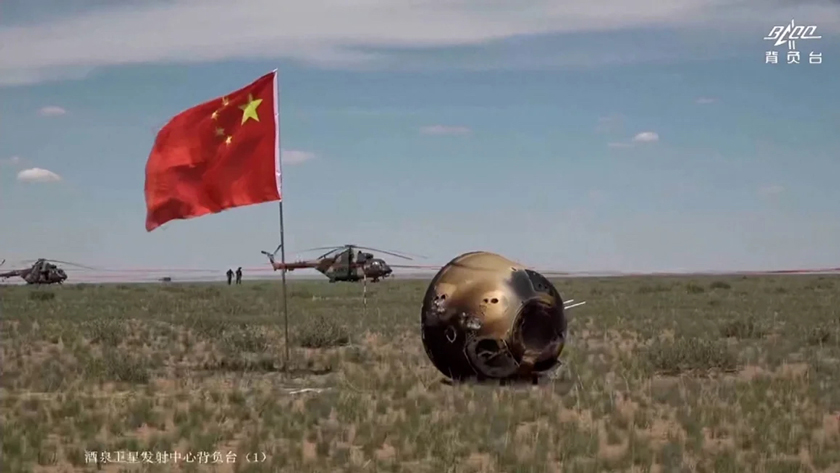
CCTV
Canister of material from far side of Moon lands in China
|
|

|
|
2024 June 25
Moon Rock Samples Returned to Earth
Simone McCarthy
China's Chang'e‑6 lunar module returned to Earth Tuesday, successfully completing its historic mission to collect the first ever samples from the far side of the Moon.
The reentry module landed in the drop zone in China's northern Inner Mongolia region. A livestream carried by state broadcaster CCTV showed the module touching down via parachute to a round of applause in the mission control room.
China National Space Administration (CNSA) head Zhang Kejian: "The Chang'e‑6 lunar exploration mission has been a complete success."
The Chang'e‑6 probe returned to Earth with up to 2 kg of moon dust and rocks. These will be analyzed by researchers in China before being opened for access by scientists worldwide. Results from the analysis may help us understand the evolution of the Moon, the Earth, and the solar system.
The samples were collected using a drill and robotic arm from a site within the South Pole−Aitken basin, a large impact crater formed some 4 billion years ago. An ascender lifted them off the lunar surface and transferred them in lunar orbit to a re‑entry vehicle for return to Earth.
Lunar soil could be used for 3D printing to produce bricks for construction of research bases on the Moon. Scientists are already working on finding more economical and practical technologies to extract helium‑3, oxygen, and hydrogen from the soil for future missions.
China retrieves rocks from lunar far side
Katrina Miller
China brought a capsule full of lunar soil from the far side of the Moon down to Earth on Tuesday. The sample was retrieved by the CNSA Chang'e‑6 lander after a 53‑day mission.
China University of Geosciences planetary geologist Long Xiao: "Chang'e‑6 is the first mission in human history to return samples from the far side of the Moon. This is a major event for scientists worldwide and a cause for celebration for all humanity."
China has executed a robotic lunar exploration program devised decades in advance. In 2013, Chang'e‑3 landed on the lunar near side in 2013 and deployed a rover. In 2019, Chang'e‑4 became the first vehicle to visit the Moon's far side and put a rover on the surface. In 2020, Chang'e‑5 sent several kg of near-side lunar regolith to Earth. The sample showed that the lunar basalts are about 2 billion years old.
Chang'e‑6 launched on May 3 and brought back material from the far side of the Moon, which has more craters and a thicker crust than the near side. Its lander descended to a site at the edge of the South Pole−Aitken basin. The lander spent two days gathering lunar rock and dust from its surroundings and the subsurface.
A rocket launched the sample canister back into lunar orbit on June 3. The module docked on June 6 with an orbiter that returned the sample to Earth. The canister touched down on June 25.
Scientists will compare the composition of the newly recovered basalts with those from the lunar near side. They will also be looking for material from surrounding regions, blasted away from their original sites by impacts with comets and asteroids. This material may come from the lower crust and upper mantle, offering clues about the structure and composition of the lunar interior.
For the future, Chang'e‑7 and 8 will explore the lunar south pole and search for water and other resources. China aims to send crewed missions to the Moon by 2030 and then build an international base at the south pole.
The US Artemis project is also shooting for the lunar south pole. NASA administrator Bill Nelson describes the parallel programs as a race between the United States and China.
Xiao: "Lunar exploration is a shared endeavor for all humanity."
AR This is an impressive achievement and a major milestone in lunar and planetary science. We need to avoid nationalist discord in space exploration for as long as possible. Being realistic, it will come in time, but let's keep the peace for now.
|
|
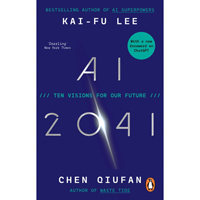
Penguin
Chinese view of our AI future
is my next read in prep
for my next book
|
|
2024 June 24
How Britain Is Seen Around Europe
Annette Dittert et al
For a German audience .. the British elections are mostly a reminder of where the destructive cluelessness of populist politicians can lead a country .. But .. nobody seems either able or willing to talk about what has happened since the 2016 referendum to leave the EU .. The eerie silence around the issue seems even more absurd given that a large majority of British voters now regret Brexit ..
— Annette Dittert
Sadness and cautious hope are common emotions .. Pollsters and political experts keep telling me Brexit is no longer a main public concern .. my experience is that Brexit comes up in almost every conversation, especially when discussing broken Britain ..
— Maria Ramirez
I have travelled a lot along this campaign trail and find the British people have an overwhelming sense of disillusionment and fatalism ..
— Antonello Guerrera
After Boris Johnson got Brexit done, feverish Austrian interest in Britain died down ..
— Tessa Szyszkowitz
Perhaps the most striking aspect of Polish coverage of the UK elections is that there is so little of it .. After the astonishment at the descent of the UK .. into utter chaos during the Johnson and Truss years, Poles have become so inured to unusual things happening in the UK that .. Britain is no longer considered a tempting place to live.
— Jakub Krupa
AR So much for British exceptionalism. The downfall of a hubristic nation should humiliate all those British nationalists who banged the drum for "Global Britain" and other such vainglorious notions.
2024 June 23
Voting on Independence Day
Mick O'Hare
At the 2019 general election, almost 53% of the electorate voted for parties offering either a second Brexit referendum or to stay in the European Union by revoking Article 50. This was a greater margin of victory than the 51.9% that won the 2016 referendum in the first place. Yet the UK voting system gave the Tories a stonking majority to get Brexit done.
The majority of British voters now recognise that Brexit was a disaster. A recent poll showed 53% wanting to rejoin the EU, with only 35% opting to stay out. In the last 175 polls on the same question, only three have delivered a verdict in favour of staying out, and two of those were in early 2022. The great majority of polls show Rejoin leading by double digits.
The man likely to be the next prime minister, Keir Starmer, says Labour will not rejoin the customs union or single market or return to freedom of movement. Labour says people are exhausted by Brexit, and it plans only to introduce a new security and defence pact with the EU. Starmer should say a reset of the UK−EU relationship is his goal.
AR Independence Day should celebrate the end of Brexiteer misrule and the start of an era marked by UK−EU rapprochement. Starmer and his successors should not feel bound by the misbegotten 2016 referendum result. A great leap forward would be to scrap the obsolete FPTP voting system and introduce proportional representation in the UK.
2024 June 22
Reform UK
John Gray
This is no normal election. We are witnessing a historic collision between technocratic government and political legitimacy. Technocracy hit the rocks when a poll put Reform ahead of the Tories.
Populism takes up issues the progressive consensus deems too important to be left to democratic choice. Immigration and climate policy are such issues, and both have stormed back into the political realm. The next will be the free market model, and its destroyer could be Nigel Farage.
Polite society has forgotten how traditional politicians used to behave. Farage addresses people in a language they understand. Voters are turning to him because he tells a story that gels with what they feel about their lives.
Farage is using his public to exact revenge on the Tories. Beyond this group, he is reaching many who are exhausted and angered by their daily battles to get by. The economic policies in his manifesto connect with the inchoate sense of many voters that market liberalism is foundering.
Farage is caught between a Thatcherite legacy he shares with the Westminster elite and the economic nationalism of his friend Donald Trump. His response is to tilt to protectionism. If Farage wins in Clacton, it will be a sign that Thatcherism is finally over.
In functioning democracies, technocracy rarely works for long. Even sound theories do not legitimate their policies. Anthropogenic climate change is a scientific fact, but science cannot tell you how to resolve conflicting values.
Labour is going all in for technocratic management. But the populist revolt is gathering momentum. In power, Labour will be sunk by the same forces that are submerging the Conservatives.
AR I think this analysis is correct, so far as it goes. Going further, Gray will surely agree that the more aggressive military postures of Putin Russia and Xi China reflect this upswell of angry popular sentiment in the West. Everyone senses a clash coming and is arming up.
These postures were likely triggered in turn by western hegemonism in Europe and the Pacific region. The halcyon days of technocratic globalism have probably passed. The problems of populist tribalism, climate disaster, and resource depletion look set to fuel a global bloodbath.
The aftermath is still in the clouds. A transatlantic West centered in the Americas and Europe will fight an Asian power centered in China through hybrid and proxy wars. The side that better leverages new tech will inherit a scorched Earth.
|
|

|
|
2024 June 21
Our Tribe
Harvey Whitehouse
Tribalism is a powerful evolved psychological bias. It has motivated tremendous feats of cooperation. But now we need a global tribe of billions: a teratribe.
For most of prehistory, our ancestors lived in small foraging bands. Around 10 ky ago, the first farmers began to settle down. By around 7 ky ago, some people were living in kilotribes, and by 4 ky ago, some were in megatribes of a million or more.
Moralising religions emerged with the first empires, setting limits on the powers of elites and extending the rule of law to all. Agriculture drove the rise of larger and more complex societies. Sociopolitical evolution was also driven by warfare. Nation states harnessed tribalism during interstate conflicts.
When people feel they share personally affecting experiences such as suffering with others, their individual and group identities can become bonded together. We call this visceral sense of oneness with the group identity fusion. It is a form of group bonding and the bedrock of tribalism.
Identity fusion based on shared experiences is scaled up through immersive media reporting about events such as wars and their human consequences. This process helps explain not only why soldiers lay down their lives for each other but also how terrorists can kill themselves.
Fusion can be based on perceptions of shared experiences occurring thousands of miles away and affecting individuals one will never meet in the flesh. It is possible to fuse with all other humans, or even all forms of life. Sharing life-changing experiences is a way of achieving identity fusion.
Thinking we share a biological essence with other members of a group can bind our personal and group identities together. Common ancestry is the basis for families, clans, and ethnic groups. Nationalists use it to portray their country as a motherland or the great leader as a father figure.
Perhaps we are entering a stage in our evolutionary history when we can all pull together as a global teratribe.
AR All of us on Earth need to feel this planetary dilation of tribalism. Some of us already do feel it: When scientists and mathematicians use the majestic plural, their royal "we" embraces all humans who can muster the grace to accept the embrace. Some may not − more fool them.
|
|

Savanta
An MRP poll result
yesterday
|
|
2024 Summer Solstice
The Aftershocks of Brexit
David Gauke
Brexit is the unspoken issue of this general election campaign.
The demise of the Conservative party can be put down to Brexit. In the aftermath of the 2016 referendum, it is all but impossible to appeal both to concerned centrists and to angry populists.
After this election, the Conservatives are likely to choose the populist route. A Tory opposition will adopt the Leave state of mind. Attempts to mitigate Brexit will be condemned as betrayal.
Brexit is unpopular with younger voters. A Labour government aiming to raise UK growth should be radical on UK relations with the EU. Labour party members will be enthusiastic for that.
Brexit was a political earthquake. The aftershocks continue.
The long road back to the EU
Matthew D'Ancona
Between late June 2016 and the end of January 2020, Leavers and Remainers fought a titanic battle in the UK. The elephant trap left by Leavers invites Remainers to say "I told you so" and to resume the fight. To get the UK back into the EU, we need to rethink.
The case for membership should say UK economic security will be impossible without access to the single market and customs union. For Labour to transform our public services, address inequality, and fix broken Britain, it will need to revisit the UK economic relationship with the EU.
American isolationism will be back if Trump wins in November. Europe will need radically more defence collaboration. And in a world faced with hundreds of millions of climate refugees by 2030, mass immigration will force wider collaboration.
AR My advice to Labour: Be bold on grasping the Brexit nettle and make progress on undoing the damage. But I'm sure no one needs my advice.
On the latest poll predictions: Karma.
|
|

TNE
|
|
2024 June 19
The Conservative Effect: 14 Wasted Years
Sir Anthony Seldon et al
It is hard to see the years since 2010 as anything but disappointing. By 2024, Britain's standing in the world was lower, the union was less strong, the country less equal, the population less well protected, growth more sluggish, public services underperforming, and respect for the institutions of the British state was lower.
Brexit will be seen in history as the defining decision of these years. In 2024, the verdict on Brexit is almost entirely negative. The nation was difficult to rule in these 14 years, the Conservative party more so. Longstanding problems contributed to the difficulties, but prime ministers chose to be distracted by the short term.
Overall, it is hard to find a comparable period in history of the Conservatives which achieved so little. Boris Johnson and Liz Truss were not up to the job of being PM. Each incoming PM took next no time to understand what their predecessors were trying to do and how to build on it rather than destroy it.
Labour cannot avoid addressing Brexit
Alastair Campbell
Labour has to tackle the Brexit elephant in the room to get the economy going again:
◼ Bloomberg Economics put the cost of Brexit to the UK economy at around £100 billion a year.
◼ The Office for Budget Responsibility estimates a 4% reduction in productivity due to Brexit.
◼ Goldman Sachs holds Brexit responsible for the UK economy growing 5% less since June 2016.
AR Brexit was the most egregious policy error by a British government since at least 1914 and possibly much longer. The Conservative party must be liquidated to atone for it.
|
|

|
|
2024 June 18
Israel Is in Existential Danger
Thomas L Friedman
Israel is up against Iran and faces the prospect of a war on three fronts.
Israeli PM Benjamin Netanyahu has formed a government with Jewish extremists who want Israeli control over all the territory between the Jordan River and the Mediterranean Sea, including Gaza. His emergency war cabinet has mo plan for ending the war and safely withdrawing from Gaza.
His government wrote the goal of annexing the West Bank into its coalition agreement. Bibi also ceded control over the police and key authorities in the defense ministry to Jewish supremacists in his coalition. That would be madness in a time of peace, but in a time of war it is insane.
An all-out war with Hezbollah in the north, a third intifada in the West Bank, conflicts with Houthis in Yemen and Iraqi militias in the Golan Heights, and conflict with Iran add up to a prescription for the United States to be dragged into a Mideast war to help Israel.
The only people who can defeat Hamas are the Palestinians of Gaza.
AR As usual on such matters, I think Friedman is right. A hubristic Israel is pursuing the Gaza war so recklessly as to invite overwhelming retribution from its Islamist enemies, led by Iran. That way lies a defeat as final for Israel as that suffered by Jews at the hands of Romans in 70 CE.
|
|

AR
Mindworlds
|
|
2024 June 17
Fearing Silence
Paul Lynch
"Deep beneath the vast economic and political failings of our age there lies a spiritual crisis ..
The modern age has created a religious problem that can no longer be answered by religion ..
We live in an age that fears silence .."
Emergence of free will
Philip Ball
A complex system shows emergence when it has a hierarchy of levels that each work independently of the details of the lower levels.
Researchers studied model systems that have such hierarchical levels and show emergent behavior. They identified three kinds of closure involved in emergent systems:
◼ Informational closure: Fine details below the macrolevel do not help us predict the macrolevel.
◼ Causal closure: Interventions at the macrolevel work no better when we go to the micro level.
◼ Computational closure: We can neglect the lower levels when simulating the upper levels.
Computational mechanics reduces a web of interactions to its simplest description, its causal state. The present state of the complex system determines its possible future states. Present states with the same future states are in the same causal state.
A complex system is a set of machines working at different scales. A computationally closed system has machines at each level that can be made by lumping the components on just the level below.
Traditionally, causation flows from the bottom up. In an emergent system, causation can operate at a higher level. The macroscale behavior has some immunity to randomness at the microscale.
If the main causes of our actions are the emergent mental states that encode memories, intentions, beliefs, and so on, that may be enough for a meaningful notion of free will.
AR On meaning, choose silence. On free will, we can accept the invincible feeling of inner freedom. No computational system can predict its own behavior. If the system is hosted in a human brain, such unpredictability by the self feels like freedom.
Zooming to a finer logical level, the innermost self of a person extends to reflect their entire phenomenal world. The limits of that world − the world of consciousness − are the limits of the innermost self and recede to infinity. In that logical sense, the inner self seems godlike.
Meditators say the self is an illusion. Mystics stay silent.
|
|

AR
Windsurfers in Poole Bay on Sunday
|
|
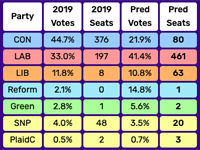
ElectoralCalculus
Election prediction:
Labour landslide
|
|
2024 June 16
UK: Manifestos Reflect Different Philosophies
The Observer
Britain has been misgoverned for 14 years. Productivity and business investment have stagnated, resulting in low growth and frozen living standards.
Life expectancy in parts of England is falling. Infant mortality is rising, the birthrate falling. Poverty blights 4.3 million children. Among adults, 1 in 6 are illiterate or innumerate. Most people cannot afford to buy a house.
Britain has largely cut its ties with its European neighbours. Britain is not trusted to keep its word or honour treaties on human rights. In the last parliament, elected in 2019, ethical standards sank to new lows.
The Tory manifesto includes hangovers from a policy framework that failed. Fresh thinking is limited to dubious proposals such as introducing a form of national service. The focus is on promised tax cuts. There is no new story.
The Lib Dem manifesto breaks the collective silence on Brexit and recognises its damage as a step toward renewed EU membership. It will launch a free national care service and will find the revenue to raise spending on public services.
The Labour manifesto promises a focus on wealth generation to fund party missions on health, education, opportunity, safer streets, and net zero. New public investment will push green projects. Baby steps are proposed on the EU.
The manifestos reveal the gulf between the main parties.
AR A bleak picture − I could have stayed in Germany.
|
|
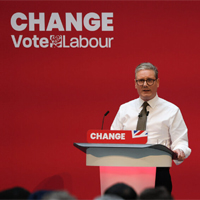
⦿ Hollie Adams
Labour Manifesto
|
|
2024 June 15
UK: Keir Starmer's Manifesto
Aditya Chakrabortty
Rishi Sunak and his party are finished. Food prices are about 25% higher than two years ago. Interest rates have risen from about 1% to over 5%. Deprivation hits everyday life: 1 in 5 schools in England have a food bank, and 11% of pupils in the UK go without meals at least once a week. In Portugal, a much poorer country, that number is under 3%.
Manifestos showcase values and lay out visions. In his, Keir Starmer crafts an identity as an agent of change: "I have changed my party .. Now I want the chance to bring that change to the country."
University of York professor Kevin Farnsworth has used a computer to analyse Labour and Conservative manifestos going back to 1945. He finds that Starmer's manifesto is out of line with Labour tradition. It's closer to Ted Heath's Tory manifesto in 1974 than to almost any Labour manifesto. The public is ready for change.
AR Under Starmer, Labour values have moved so far toward Tory ones that the party has swallowed several dubious assumptions. Economic growth is not paramount: Proper usage and distribution of current levels of income and wealth could transform the UK. And deep reform of the political and business environment is essential before any transformation can achieve lasting change.
Quantum Cosmic Censorship
Thomas Lewton
Netta Engelhardt, Evita Verheijden, and Lisa Yang (EVY) are exploring holographic duality and the cosmic censorship hypothesis.
Cosmic censorship hides singularities behind event horizons. EVY used the AdS/CFT correspondence between quantum CFT and AdS spacetime to see if singularities in the bulk spacetime have a signature in the boundary CFT.
EVY asked how black holes might appear in the CFT, where black holes appear as maximally chaotic: Pseudo-randomness in the CFT correlates with the existence of an event horizon in bulk spacetime. EVY call this cryptographic censorship.
A quantum computer, if fed with enough randomness, can turn into a black hole. If the signature of spacetime singularities in the CFT is this randomness, any matter or fields that fall into them are reflected, and they appear random.
Quantum cosmic censorship (QCC) is the conjecture that there are no classical naked singularities. QCC allows very small naked singularities, with too little randomness in the CFT for an event horizon. These are harmless.
EVY hope to explore how the holographic dictionary translates the quantum world into gravity.
AR As is so often the case in fundamental physics, this is work in progress. Unpacking the math sufficiently to see the real implications for singularities will take more time. Meanwhile, this new brand of censorship leaves me unconvinced.
|
|

VoteClimate
UK general election 2024:
Estimate for Poole
AR Poole was a safe Tory seat.
If we can believe VoteClimate,
we are witnessing a political
earthquake in the UK.
|
|
2024 June 14
UK: Electoral Politics of Brexit
Matt Withers
The latest NatCen British social attitudes survey shows just 24% of British people now think the UK should be outside the EU, and 71% think the British economy is worse off because of Brexit.
The Conservatives are so proud of their signature achievement in office that they have resolved never to mention it again. Keir Starmer is convinced it remains popular with northern voters and stays silent. Even the Liberal Democrats mention rejoining the single market only on page 112 of their manifesto.
European Movement UK chair Mike Galsworthy: "Throughout this general election, political candidates of all parties must acknowledge the elephant in the room .. Brexit has failed. It is doing severe damage to the UK every single day. If there were Brexit benefits to be had, we would have seen them by now."
Even Brexit's biggest cheerleaders no longer pretend there were any tangible benefits to their pet project. People can see that Brexit has failed and nobody is willing to talk about it.
AR The Tories have been sunk by Brexit. Nigel Farage has destroyed them. Last night on ITV, he was booed by the studio audience, and the SNP man was cheered for complaining about Brexit. I think Starmer will mellow on this theme once he's in office.
Entropy and Thermodynamics
Sam Green
Sadi Carnot introduced the second law of thermodynamics in 1824. He said heat produced motion for doing work by dropping from a high temperature to a lower temperature.
Rudolf Clausius defined entropy: The second law implies that the entropy of the universe tends to a maximum. Eventually all work will cease in the heat death of the universe.
James Clerk Maxwell, Ludwig Boltzmann and J Willard Gibbs defined entropy in statistical mechanics. Maxwell concluded that the second law has merely statistical validity.
Entropy quantifies how probable the state of a system is. An ordered system has low entropy and low probability because there are more ways to be disordered than ordered. States with higher entropy are more probable.
The laws of mechanics are symmetrical in time. The second law cannot explain time's arrow.
AR Entropy as glossed here is a classical concept. Recent work demonstrates that a quantum view transforms the outlook and offers hope of resolving the problems lurking here.
Essentially, entanglement shrinks the set of possible states, decoherence breaks time symmetry, and information theory puts a new gloss on the statistics of entropy.
A lot of time will flow before this view achieves consensus.
|
|
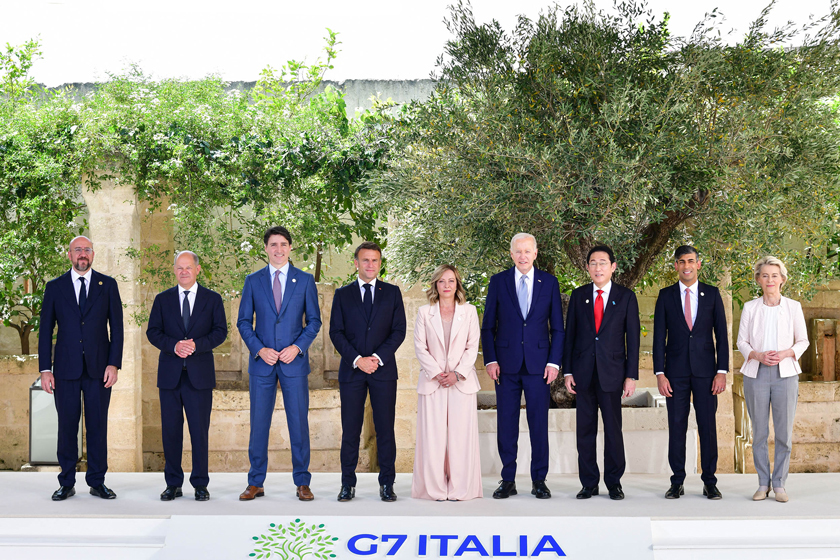
G7 Italia
G7 Summit, Italy, June 13−15, 2024 (L to R): European Council president Charles Michel, German chancellor Olaf Scholz,
Canadian prime minister Justin Trudeau, French president Emmanuel Macron, Italian prime minister Giorgia Meloni,
US president Joe Biden, Japanese prime minister Fumio Kishida, UK prime minister Rishi Sunak,
European Commission president Ursula von der Leyen
AR Most of these leaders may be out of office by the end of the year.
|
|

|
|
2024 June 13
America: A Humbler Superpower
Damien Cave
Across the Asia−Pacific region, America is no longer the confident guarantor of security. The rise of China is too great a threat.
Officials from across the region say the next century is likely to be less dominated by America than the last. The United States has been weakened by the Iraq and Afghanistan wars, the decline of its industrial base, and its own internal divisions.
Since 1945, the US share of the global economy has been cut in half. China now produces over a third of the world's manufactured goods, three times the US share. Japan, India, and South Korea have joined the top seven in terms of output.
US military superiority remains, but China has much more capacity for military production. Military budgets across Asia have soared, and many countries in the region have turned to the United States as a provider of weapons, training, and investment.
Japan has made the sharpest turn. Tokyo is now more critical of the United States and seeks a leading role in protecting regional stability. A senior Japanese intelligence official says the United States is no longer what it was at the turn of the century.
Indian officials see the turning point as the pullout of US troops from Afghanistan in 2021. US officials have toned down their concerns about Hindu nationalism or suppression of dissent and now see India as a multiplier for tech innovation.
Singapore's veteran diplomat Bilahari Kausikan says America is increasingly dysfunctional yet still indispensable.
AR Hegelians might say this great historical change is the broadly predictable march of the Weltgeist across the face of the Earth.
China can orchestrate an epochal cleanup of the human act on this planet and prompt Americans and Europeans to update their increasingly dysfunctional political systems in response to their new and humbler roles in global political dynamics.
I say: Look on the bright side.
|
|

YouTube
Taylor Swift stars in The Eras Tour
Taylor Swift fans made Earth move at Edinburgh gig
|
|

|
|
2024 June 12
UK Election: Nobody Mentions Brexit
Dan Sabbagh
In the 2019 election, "Get Brexit done" was the promise. In 2024, the subject has barely featured.
Keir Starmer hardly mentions the topic but says he aims to build a "closer, better" relationship with the EU. In the run-up to the 2019 election, he pressed for Labour to support a second referendum.
Rishi Sunak is also reluctant to talk about Brexit. The Conservatives have little to show in terms of Brexit successes. Sunak supported Brexit in 2016, but he has not been notably enthusiastic since.
Nigel Farage mentions it only to complain. He says Tory leaders have presided over "a massive betrayal of the 17.4 million people who voted Brexit" by failing to deliver a sharp fall in immigration.
British voters are focused on the cost of living crisis. Leaving the EU has hit UK GDP by 2−3%. Leaders are unwilling to admit this because rejoining would almost certainly require another referendum.
Labour may become bolder. Labour spokesperson for foreign affairs David Lammy wants to negotiate a "security pact" with the EU. This could be extended to economic and climate security.
But perhaps the Brexit silence is due to voter fatigue.
AR The debate needs a new context. European security is endangered by Russian aggression in Ukraine, but this will only shift the dial if and when Trump ends US support for Ukraine. Until then, British Europhiles need to be patient.
|
|
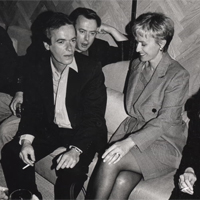
⦿ Dafydd Jones
Martin Amis, Christopher
Hitchens, Tina Brown
New York, 1995
|
|
2024 June 11
Martin Amis Remembered
Tina Brown
I was 19. Martin was 23. I was still at Oxford. Martin had just finished The Rachel Papers. I was confident and vulnerable. He was cocky, beguiling and witheringly funny. The novel's publication turned him into a wunderkind.
Martin's most seductive appeal was in his voice. Off the page, a rich, iconoclastic croak. On the page, a combination of curated American junkyard and British irony that hit the low notes so hard against the high that sparks flew and made every sentence electric. Over the years, he became graver, more wary perhaps, but unchanged in his satirical glee.
Last February, Isabel arranged for me to visit Martin at their home in Brooklyn. They loved each other devotedly, to the death. He was still Martin: "No one writes anything really good after 70."
A life in quotes
Martin Amis
On writing: "There are pains you have to go through when writing a novel. If I wrote a novel without that .. it would make me very suspicious. It has to have the admixture of pain. But otherwise it seems to me a hilariously enjoyable way of spending one's time."
On reading: "You read literature to have a good time. Or why else would people go on doing it?"
On his father Kingsley Amis: "I always thought if he had been born a generation later, he would have written my novels. And if I'd been born a generation earlier, I would have written his novels."
On his friend Christopher Hitchens: "He had a greater love of life than me. He really enjoyed everything, so much. I quite like life, but I'm not as crazy about it as he was."
On ageing: "The older writer, at some point, is going to lose touch with what the contemporary moment feels like."
AR He and I were undergraduate friends. I found it too easy to envy his success, so I pursued a more serious and purposeful life. Like many philosophers, I can still write useful stuff in my old age.
|
|

|
|
2024 June 10
Quantum Time Loops
Miriam Frankel
Time loops are closed time-like curves (CTCs). In general relativity, they need a huge mass rotating very fast, such as a black hole. In quantum theory, a time loop at a tiny scale defies the idea that cause always precedes effect.
Quantum theory introduces entanglement. Two entangled particles share a quantum state even when far apart. Entanglement is usually taken to challenge locality and prove reality is nonlocal.
Retrocausality casts entanglement as a connection through time. Measuring an entangled particle sends a signal back to the time it was entangled, which then sets the state of the other particle. Locality is preserved, but standard causality is gone.
Until now, retrocausality has implied a multiverse. A quantum CTC would have a time-travelling particle go back and destroy itself but survive in another strand of the multiverse.
An updated quantum CTC works using post-selection. We use post-selection and entanglement to go back and change things that were never measured in the past and were still uncertain.
AR This an old idea that previously seemed impractical. I recall reading it in a philosophical essay by Michael Dummett decades ago. I mulled how the idea would work in quantum theory and have liked it ever since. Now I can come out and explicate its implications.
|
|
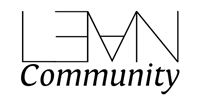
|
|
2024 June 9
AI for Mathematicians
Terence Tao
Imagine explaining your mathematical proofs to an AI that tries to formalize it in Lean as you go along. If everything checks out, the AI says: "Here's your paper in LaTeX; here's your Lean proof. If you like, I can press this button and submit it to a journal for you."
The fastest way to formalize is first to find the human proof. Humans come up with the ideas and the first draft. Then you convert it to a formal proof. In future collaborative projects, people could have ideas on how to prove little pieces, and the AI formalizes that and tries to put them together.
In three years, AI will become useful for mathematicians. I don't think math will become solved. Even if AI can do the type of math we do now, we'll just move to a higher type. Today, we prove things one at a time like craftsmen, but in other disciplines we have mass production. With AI, we can prove thousands of theorems at a time. Human mathematicians will direct the AI.
We should start formalizing textbooks. Interactive textbooks could describe a proof in a high-level sense, assuming lots of knowledge. You can expand steps you don't understand and go into details down to the axioms. The computer can create these interactive textbooks for you.
A new industry will try to extract insight from AI proofs. Project managers will organize projects, specialists will work in subfields, and people will convert the AI proofs into something readable. It will be like the way other modern industries work.
AR This is the sort of change I've seen coming for over 25 years. At the math publisher Springer in Germany, we discussed it at some length. Now the change is really on its way.
|
|

|
|
2024 June 8
Shrink the Economy, Save the World?
Jennifer Szalai
Economic growth has long been pursued by governments across the world. But gains in economic growth have failed to lift all boats. Is economic growth desirable?
Degrowth remained on the fringes of the fringe for decades, until increasing awareness about global warming percolated into public debates this century. The 2008 financial crisis fueled a sense that relentless economic growth may be more poison than panacea.
Jason Hickel: "Degrowth is about reducing the material and energy throughput of the economy to bring it back into balance with the living world, while distributing income and resources more fairly, liberating people from needless work, and investing in the public goods that people need to thrive."
Technological advances mean that economic prosperity doesn't have to lead to ecological ruin. But we have plundered the planet instead of figuring out more egalitarian ways to live.
Kohei Saito says any attempt to blend degrowth with capitalism is doomed to fail. Capitalism requires growth. Saito demands not just degrowth, but degrowth communism, not the statism of the Soviet Union but something more like communitarianism.
Like Hickel, Saito promises a new kind of "radical abundance" with a commitment to the commons that lets us savor public wealth instead of endlessly chasing stuff we don't need.
Techno-optimists place their faith in innovation. Degrowthers place theirs in social movements. Both sides claim to be the realists.
AR I tried advocating degrowth at an economics seminar in Oxford in about 1971, but economists were too wedded to growth. Now we've hit planetary limits, perhaps the idea has a chance.
But probably not: Like trees in a forest, each economy seeks to outgrow its neighbors. Only this way can the economic winner also prevail in a clash of arms, or so it seems.
|
|

KNDS
Leopard 2A7+
|
|

|
|
2024 June 7
NATO Deters Russian Aggression
James Reynolds
NATO is drawing up plans to send US troops to the frontlines of Europe in the event of conflict with Russia. The plans include contingencies in case of Russian bombardment.
NATO leaders agreed last year to keep 300,000 troops in a state of high readiness. The plans are for US troops to land at one of five ports across Europe. NATO already had plans for them to deploy in the Netherlands before moving by train to Poland.
New land corridors offer a failsafe in case of Russia attacks that cut the route through central Europe. Allied troops would move through Italy into Slovenia and the Balkans, through Greece and Turkey toward southern Ukraine, and through Norway and Sweden into Finland.
Poland plans to field the biggest army in Europe by 2035. This year, defence spending will account for around 4% of its GDP. Warsaw has also let US troops establish a permanent garrison in Poland.
Russia has stepped up its war rhetoric. A Russian military expert suggests Russia would be able to knock out Britain's nuclear deterrent in one day in the event of an all-out war. Another says France would likely prove more of a challenge but would likewise be no match for a Russian attack.
Last week, President Putin warned that western countries would suffer grave consequences if they allowed their weapons to be fired from Ukraine into Russia.
Germany reveals plan in case Russia attacks
James Reynolds
Germany has updated its wartime measures to prepare for the possibility of conflict by the end of the decade. The new plans see Germany could impose compulsory conscription, evacuate citizens, and ration food if war breaks out in Europe.
In the event of war, Germany will protect its civilians by facilitating makeshift subway bunkers, preparing hospitals for a sudden spike in the number of patients, and storing emergency food reserves in secret locations. In the worst-case scenario, the government will ration and stockpile food for one hot meal per day and stockpile water for firefighting purposes.
The updated plan outlines further measures in the event of war. Private companies will have to make their vehicles and IT infrastructure available as required for the war effort. Doctors, psychologists, nurses, and vets may be repurposed in military and civil service roles. Compulsory service for conscripts will allow citizens to be drafted at any time.
Defense minister Boris Pistorius: "Due to Russian aggression, we have a completely changed security situation in Europe .. The overall defense of Germany is a task to which we must all contribute .. each and every one of us."
AR This is sobering. China is supporting Russia, which would be less bellicose without that support. Maybe China aims to weaken Europe enough to neutralize it in case of a major confrontation with the United States. If so, the effect is likely to be (a) the opposite and (b) extremely destructive to the human presence on planet Earth.
|
|

BBC
British media go big on D‑Day 80th anniversary celebrations
|
|
Nvidia market cap: $3 trillion
Computex attendees forecast
a surge in demand for AI PCs
with chips to run PA apps. The
biggest thing since WiFi, they
may dominate the PC market
by 2028. Nvidia could use
its GPUs to compete
in that market.

|
|
2024 June 6
AI: Creator or Destroyer of Worlds?
Thomas B Edsall
Daron Acemoglu, David Autor, and Simon Johnson (AAJ): "The private sector in the United States is currently pursuing a path for generative AI that emphasizes automation and the displacement of labor, along with intrusive workplace surveillance."
AAJ see a threat to high-skill jobs: "There is no guarantee that the transformative capabilities of generative AI will be used for the betterment of work or workers."
Tyna Eloundou, Pamela Mishkin, Sam Manning, and Daniel Rock (EMMR): "Around 80% of the US work force could have at least 10% of their work tasks affected by the introduction of large language models .. science and critical thinking skills are strongly negatively associated with exposure .. occupations requiring these skills are less likely to be impacted by current LLMs."
Martin Neil Baily, Erik Brynjolfsson, and Anton Korinek (BBK) say LLMs "not only make workers more productive but also increase the rate of innovation" and spur growth: "AI will impact a wide array of industries, prompting investments in new skills, transforming business processes and altering the nature of work."
BBK caution: "If labor can be replaced by machines across a wide range of tasks in the future, we may experience an AI-powered growth takeoff at the same time that the value of labor declines. This would present a significant challenge for our society."
Andreas Jungherr: "AI in autocracies creates an environment of permissive privacy regulation that provides developers and modelers with vast troves of data .. [and] provide authoritarian leaders access to the needs and views of their constituents, helping them increase their state capacities through AI-assisted governance and planning."
Bruce Schneier says AI can cut the need for politicians: Our personal AI could participate in policy debates with millions of other personal AIs, combining their data to reach a consensus on policy.
Schneier: "You will want [your personal AI assistant] to know everything about you, so it can most effectively work on your behalf."
AR This is all stuff I've pondered already, but it's nice to record some references and to know what I can presume my readers will already know. I foresaw the points made by Jungherr and Schneier in my 2010 book on Globorg. Such historic political possibilities cast long shadows, both before and after the apocalypse.
|
|

|
|
2024 June 5
Mathematical Equality
Alex Wilkins
Mathematicians are divided about what makes two things equal.
Imperial College London mathematician Kevin Buzzard: "Mathematicians use equality to mean two different things, and I was fine with that. Then I started doing maths on a computer."
The first definition of equality is that each side of an equation represents the same mathematical object. This can be proved through a series of logical transformations from one side to the other.
Set theory provides the logical foundations for most modern mathematics. If two sets contain the same elements, then they are equal. The order of the elements in a set is irrelevant.
Two sets are isomorphic if there is 1−1 mapping between them. The canonical isomorphism of two sets is the only reasonable way to link them, if there is one. Traditional equality and canonical isomorphism are defined identically in homotopy type theory.
Having two definitions for equality is a problem for computers. Maybe we should identify canonical isomorphisms and equality and revise computer programs to work around that.
Or maybe we should leave mathematical equality as it is.
AR My vote: Leave it as it is. On the other hand, identity remains unattributable unless some kind of isomorphism can be established. I recall debating the identity of indiscernibles (extensional identity) versus rigid designators (a kind of intensional identity) in philosophy.
|
|

CLEP
China's lunar probe Chang'e‑6 has taken off from the far side of the Moon carrying samples to bring back to Earth.
China National Space Administration (CNSA) says the ascender module has entered orbit around the Moon.
Analyzing the samples will deepen research on the formation and evolutionary history of the Moon.
President Xi Jinping has poured huge resources into the Chinese space program.
|
|

|
|
2024 June 4
Origins of the Pandemic
Alina Chan
An estimated 25 million people around the world have died because of Covid‑19, with over a million in the United States. The pandemic most likely occurred when a virus escaped from a research lab.
◼ The SARS‑like virus that caused the pandemic emerged in Wuhan. A team of scientists at the Wuhan Institute of Virology had been hunting for SARS‑like viruses.
◼ The year before the outbreak, the Wuhan institute proposed a project named Defuse to create viruses similar to SARS‑CoV‑2. The project would search for and create SARS‑like viruses carrying spikes with a furin cleavage site, making it capable of causing a pandemic.
SARS‑CoV‑2 is the only known SARS‑like virus to possess a furin cleavage site in its spike. Wuhan scientists did not mention the site in their seminal paper in 2020.
◼ The Wuhan lab pursued this type of work under low biosafety conditions that could not have contained an airborne virus as infectious as SARS‑CoV‑2. If the virus had escaped from a laboratory in 2019, the leak most likely would have gone undetected until too late.
◼ The hypothesis that Covid‑19 came from an animal at a seafood market in Wuhan is not supported by strong evidence. The Chinese authorities blocked the reporting of early cases not linked to the market and destroyed patient samples.
The available evidence does not distinguish between a human superspreader event and a natural spillover at the market. All known Covid‑19 cases probably stem from a single introduction of SARS‑CoV‑2 into people.
◼ Key evidence that the virus had emerged from the wildlife trade is still missing. In the SARS and MERS epidemics, scientists found evidence that demonstrated a natural origin. For SARS‑CoV‑2, all this evidence is missing.
When respiratory viruses circulate in animals, variants usually fail to transmit well after crossing over to a new species and tend to die off quickly. SARS‑CoV‑2 required little or no adaptation to spread rapidly in humans and other animals.
A laboratory accident is the most parsimonious explanation of how the pandemic began. A successful investigation of the pandemic's root cause could deter future acts of negligence and deceit.
AR We need to learn the hard lessons from the pandemic. This research is scientifically strong and needs to be taken fully on board. Chinese authorities must begin to behave in more consistent accord with international best practice.
|
|
 
AR
Bournemouth beach, Sunday
|
|

TOHO
A more interesting movie
than you might think
|
|
2024 June 3
Brain Implants
Clive Cookson, Richard Waters
Computerized implants can interact with the human brain and CNS. Brain−computer interfaces can assist severely disabled people. BCI business could soon be worth billions of dollars a year.
Elon Musk founded Neuralink to develop BCI technology. He aims to use it to merge human intelligence with AI by greatly increasing the bandwidth of the brain. But collecting, exporting, and interpreting signals from the brain is still an infant science.
Medical uses for two‑way neural implants between brain and device go beyond paralyzed people and range from tackling sight and hearing loss to improving treatment of chronic pain and psychiatric conditions.
External BCIs placed on the skin or scalp can detect and modulate neural activity to some extent, but the only way to record it sensitively and for extended periods is with a device placed surgically under the skull. The invasive brain surgery required rules out the procedure in most cases.
A recent BrainGate study inserted two arrays each about the size of a small pill with a total of 128 electrodes into the cerebral cortex of a patient who had lost the ability to talk. An AI decodes her neural activity into spoken phonemes. Another AI converts the stream of phonemes into words for speech or screen output.
A company is testing thin electrodes on silicone that wraps over the folds of the cerebral cortex. Another is testing a graphene interface that sits on the cortical surface like shrink‑wrap.
Breakthroughs will depend on continued improvements both in sensor electronics to read and transmit brain signals and in AI apps to interpret the signals.
AR This will be an enormously consequential development, imho. When the relevant AI matures and the required surgery becomes safe and routine, people will sign up in their millions for BCIs. This will overcome the bandwidth bottleneck that currently condemns us to fiddly touchscreen interfaces.
|
|
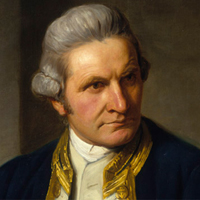
Royal Museums Greenwich
Captain James Cook RN
|
|
2024 June 2
Reform UK
Mail Online
Opinium finds the Labour party is polling at 45% while the Tories are at 25%. Reform UK founder Nigel Farage has opted against making another bid to become an MP on July 4, but he joined Reform leader Richard Tice on the campaign trail yesterday.
Farage is rumoured to want to facilitate a merger with the Tories after the election. He calls it "more like a takeover" but says he has "no interest" in striking a pre-election deal with the Tories: "There is no deal with the Conservatives whatsoever."
Conservative MPs fear Reform UK will hand Labour a bigger victory by splitting the right-wing vote. Reform is currently polling at 12−15%.
AR It's in the Mail; it must be true. Seriously, the political right in the UK is due for a metamorphosis into something much more radical. Fascism in the UK, here we come.
2024 June 1
The Wide Wide Sea
Hampton Sides
On July 12, 1776, Captain James Cook, already lionized as the greatest explorer in British history, set off on his third voyage in HMS Resolution. On February 14, 1779, on a beach in Hawaii, Cook was killed in a conflict with the natives.
Renowned for his humane leadership, dedication to science, and curiosity and respect greeting societies new to him, Cook had already mapped huge swathes of the Pacific and initiated first European contact with numerous native peoples.
The Wide Wide Sea is at once a ferociously paced, epic adventure and a searching examination of the consequences of the Age of Exploration from a master storyteller.
"Enthralling .. as gripping as any well-paced thriller but a lot more interesting because it is also true"
— The Times
"Splendid in every way .. a marvellous nonfiction thriller"
— Wall Street Journal
"Extraordinary .. meticulous research shores up a fast-paced narrative"
— Financial Times
"Viscerally dramatic .. spellbinding .. bold, dynamic, unusually vivid"
— The New York Times
"Unforgettable .. a pulse-racing epic .. a masterful work of history and storytelling"
— Los Angeles Times
"Reads like a first-class epic thriller"
— TIME
AR I read the book over the past week. I found it superb, captivating, a genial mix of painstakingly researched analysis and artfully written and paced narrative, so good that I cleared my diary to enjoy it in a concentrated binge of pure joy. Declaration of interest: I am a blood relative of James Cook on my mother's side.
|
|

VKW
Poland 2024
(57 photos)
|
|

|
|
2024 May 31
Donald Trump, Felon
The New York Times
In Lower Manhattan on Thursday, Donald Trump was convicted of 34 felony counts. The presumptive Republican nominee for president was found guilty of falsifying business records to prevent voters from learning about a sexual encounter that he believed would have been politically damaging.
The rule of law binds everyone, even former presidents. The trial was conducted much like any other criminal trial in New York. That 12 Americans could sit in judgment of the former and potentially future president is a remarkable display of the democratic principles that Americans prize.
Trump received a fair trial. The public should know about the unethical way that Trump conducts his life and his business. The conviction will affect the decision of many voters. They will be able to consider the choices before them with full information, then freely cast their ballots.
AR It's a step forward. Perhaps enough voters will be disenchanted with Trump by the conviction to vote Democrat in November. But I suspect that Trump's core base will be energized by the verdict to campaign even more passionately. A stronger smackdown is needed.
|
|

|
|
2024 May 30
European Air Defences
Financial Times
NATO says its members can provide less than 5% of air defence capacities needed to protect central and eastern Europe against a full-scale attack.
NATO foreign ministers are preparing for a NATO summit in Washington in July, where beefing up European defence will be a central topic. Some say Russia may be able to attack a NATO member state by the end of the decade.
Russian use of missiles, drones, and glide bombs in Ukraine adds urgency to NATO efforts to ramp up defence spending. European NATO states have limited stocks of air defence equipment and have failed to provide enough to Ukraine. Some EU capitals suggest raising common debt to fund European defence projects.
A NATO official: "NATO's new defence plans .. increase air and missile defence requirements in quantity and readiness."
Putin wants to negotiate
Paul Mason
Vladimir Putin offers to end the war in Ukraine at the current front lines. But he says he will prolong the war unless Kyiv surrenders the Donbas region and Crimea.
Western leaders will assemble in July for a NATO summit to renew their commitment to Ukraine. A week later, Ukraine will host a major peace conference to propose a return to internationally recognised borders, a formal end to hostilities, and the prosecution of alleged war criminals.
Western governments can enable Ukraine to win. The best way to deter Chinese aggression in the Pacific is to defeat Russia in the Black Sea.
Biden under growing pressure
David E Sanger
President Biden is edging toward reversing his ban on Ukraine shooting US weapons into Russian territory. He was concerned it could escalate into a direct US confrontation with a nuclear-armed adversary. After months of complaints from Ukraine, the White House is reassessing the risk.
US secretary of state Antony Blinken suggests the Biden administration might "adapt and adjust" its stance on attacks inside Russia with US weapons, based on changing battlefield conditions.
Any change of policy will most likely come with severe restrictions on how the Ukrainians can use US arms. If Biden reverses course, officials say he might never announce it. Instead, US artillery shells and missiles will just start landing on Russian military targets.
The Kremlin says Biden is risking escalation. Last week, it ran exercises involving its arsenal of tactical nuclear weapons.
Former US military official Joseph Nye: "Putin is rattling the nuclear saber to keep Biden from letting US weapons be used to counterattack .. what you have happening is a nuclear bargaining game, and a credibility game."
Former US military official Seth Jones: "Worries about Ukraine using US weapons to strike war-related targets on Russian territory are misplaced .. Putin's threats of escalations since the war began have been hollow."
AR Western leaders cannot let Putin continue to ravage Ukraine. Letting Ukraine use US weapons to best military effect is the least we can do. Americans were happy enough to bomb Germany and Japan in WW2, and Putin is appealing to WW2 ideas to motivate his assaults on Ukraine.
As for NATO air defenses, it is obvious that ramping up production of such systems now is far better than sending in troops later to recover NATO territory lost due to weak air defenses. The NATO edge in developing and producing such systems is great enough to make any shortfall here inexcusable.
As for peace deals with Putin, forget it. He has to go. Unconditional demand.
|
|

|
|
2024 May 29
Neoliberalism
Peter Geoghegan
Friedrich Hayek published The Road to Serfdom in 1944. He said that welfare states would lead to totalitarianism, individuals acting in their own self-interest were a bulwark against tyranny, and rich people should put their wealth beyond the reach of government.
Inspired by his book, belief in the primacy of the free market, deregulation, and globalization has been US−UK political orthodoxy for the past 40 years. It has been embraced by Democrats and Republicans, Conservatives and Labour, Ronald Reagan and Margaret Thatcher.
The neoliberal era launched by Reagan and Thatcher has brought with it huge disparities between rich and poor. Even on its own terms, neoliberalism has not delivered. Over the past 40 years, growth has been slower globally than it was for much of the postwar period.
George Monbiot and Peter Hutchison propose a politics of belonging in a participatory democracy. The first step is a campaign for finance reform to stop the rich buying political outcomes.
AR Someone should write a critical history of neoliberalism titled The Road to Perdition. The first priority of any economic system should be the welfare of the people whose work creates and sustains the wealth that politicians and others steer toward chosen economic outcomes. Maximization of the bank balances of the richest 1% cannot be allowed to override that priority.
The United States and the UK are plutocracies, run by and for ruthless capitalists in the former system and an entrenched establishment in the latter. Neither polity is optimal by any reasonable standards for judging the political systems our world has to offer. By those standards, the two flagship Anglophone economies are unfit for purpose.
|
|

|
|
2024 May 28
Quantum Arrow of Time
Leah Crane
In the beginning, there was no quantum entanglement. When two particles become entangled, outside interference will eventually cause their entanglement to break down by decoherence.
The decoherent, or quantum, arrow of time is the idea that because decoherence is irreversible, it could explain why time flows forward and never backward.
The classical thermodynamic story sets the direction of time by the idea that entropy must always increase, so the starting state of the universe had extremely low entropy.
Jim Al‑Khalili and Eddy Keming Chen say there was no entanglement in the very early universe. The initial state of low entanglement had low thermodynamic entropy.
Al‑Khalili: "Once you .. you have thermodynamic entropy, you have gravity clumping everything up .. Once you have an arrow .. everything else happens on its own."
A decoherent arrow of time suggests the universe will continue to evolve long after its thermodynamic heat death.
Chen: "There's going to be the thermodynamic heat death, everything becomes a soup with no structure, but it will take many, many billions of years later to reach maximum entanglement .. interesting things .. happen after the heat death of the universe."
Al‑Khalili: "The direction of time, I would argue, is fundamental, and therefore time is real."
AR Apart from the vivid headline, this is old news. Continuing cosmic evolution due to rising entanglement entropy was a clear consequence of recent work on the information paradox for black holes. But it's nice to have the big consequence so clearly spelled out.
|
|
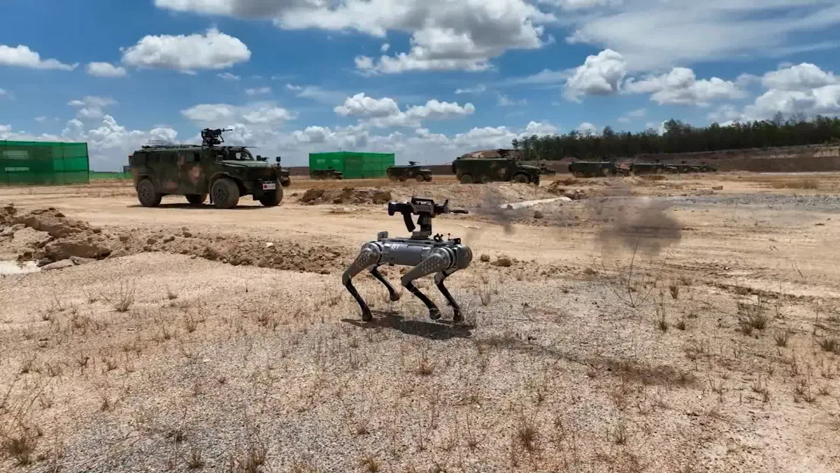
CCTV
Chinese Killer Dog
In the recent China−Cambodia "Golden Dragon 2024" military exercise, the People's Liberation Army showed off a robot dog
with an automatic rifle on its back: "It can serve as a new member in our urban combat operations, replacing our members
to conduct reconnaissance and identify enemy and strike the target."
|
|

|
|
2024 May 27
Chinese Industrial Policy
The New York Times
China accounted for 85% of all clean-energy manufacturing investment in the world in 1922. Now the United States, Europe, and other wealthy nations are planning to subsidize homegrown companies and block competing Chinese products.
China's industrial dominance follows decades of experience using the power of a one-party state. Its unrivaled production of solar panels and electric vehicles is built on an earlier cultivation of key industries and investment in infrastructure.
From 2017 to 2019, China spent 1.7% of its GDP on industrial support, more than twice the share of any other country. It is said to have skirted international trade agreements, engaged in intellectual property theft, and used forced labor.
China's rise to dominance shows the potential and power of national industrial policy. Beijing claims that China has increased the global supply of goods and alleviated international inflation pressures, while helping the world fight climate change.
President Biden will impose tariffs of up to 100% on imports of Chinese green technologies including electric vehicles. The aim is to deny China any more of an opening in America. European officials are expected to impose their own tariffs.
Hong Kong professor Zheng Yongnian: "The West's decision to pursue neoliberal economic policies was a strategic mistake, which led to the deindustrialization of their economies and provided China with an opportunity."
AR China's rise is a remarkable and impressive phenomenon. If the disastrous social aftermath in the United States and the UK had not already done so, that rise demonstrates the grossly wrong-headed decisions in the Reagan−Thatcher era to pursue market-driven "greed is good" policies and promote neoliberal capitalism as the ruling ideology.
Most European governments were more skeptical about the merits of neoliberalism, with the result that EU orthodoxy today is less toxic in its impact on domestic wellbeing than the nationalist nonsense that led to Brexit in the UK.
|
|

Netflix trailer
Jennifer Lopez
|
|
2024 May 26
Atlas
Space
Atlas, directed by Brad Peyton and starring Jennifer Lopez, centers on the hunt for a rogue android terrorist named Harlan who flees Earth after a major attack on humanity. This $100 million action flick features an AI specialist named Atlas Shepherd (Lopez) who insists on joining the hunt. Atlas is really about trust and how difficult it is to trust people.
AI shrugged
Alissa Wilkinson
The notion of an AI terrorist, as in Brad Peyton's new sci‑fi action movie Atlas, seems plausible.
That terrorist, Harlan, threatened humanity with extinction, wiping out millions of people before decamping for outer space. Humans left behind on Earth wait uneasily for his second coming.
After years of waiting, the authorities capture an AI bot associated with Harlan. A scientist named Atlas Shepherd (Jennifer Lopez) is called in as the world's leading expert on Harlan. She boards a spacecraft headed for the planet where Harlan has been hiding out.
At times, Atlas feels like pure pastiche, and it looks kind of fake in the big action sequences. Despite having an AI in her home, Shepherd is suspicious of the technology. So most of the movie's tension comes from her relationship to an AI named Smith.
Atlas is concerned with the morality of AI. It says we're wrong to stand in the way of progress.
Netflix mockbuster
Benjamin Lee
Atlas lead Jennifer Lopez is an actor with more star presence than most. An action movie with a sci‑fi bent is something new for her but feels like an awkward mismatch.
As data analyst Atlas Shepherd, Lopez plays someone who was a child raised alongside a robot called Harlan, which then became the world's first AI terrorist before escaping to another planet. Decades later, a mission to capture Harlan is launched with Atlas along for the ride.
Lopez is then situated inside a robotic mech suit, learning to fight and befriending an entity called Smith. As she finds that maybe AI isn't so bad after all. Lopez is stuck with some hideously corny dialog. The scenes of her bonding with Smith are embarrassingly awful.
For a film that wants us to stop worrying and love big tech, Atlas does an awfully good job of showing us why we should still be wary of it.
AR Atlas is made for American teens addicted to shootouts, explosions, and destructive mayhem in chaotic profusion. But if you cut through all that, there's a tender (yet sentimental) tale about friendship and trust transcending the humans-vs-machines divide. As a bonus, there's some really cool tech in the form of a supersized AI mech suit that Atlas drives and survives inside.
Most of the movie is generic, with obvious homage throughout to Aliens and Avatar. But the crafted quality of those James Cameron classics is lost and gone in Atlas. Instead, we get an exuberantly spectacular surfeit of over-the-top action scenes that defy all credibility as they consume vast arsenals of munitions to kill baddies yet not goodies.
The redeeming message of Atlas is that AI is good, so long as the humans who create and deploy it do their jobs well. Naturally, human imperfection makes this precondition hopelessly utopian. The result is a movie for which high hopes are also utopian, but at least it gives US teens a dose of moral uplift along with its orgies of destruction.
|
|

|
|
2024 May 25
European Rearmament
Radosław Sikorski
Since the end of the Cold War, the West has focused on high-value, hi-tech platforms and weapons. We are only now rediscovering that actually you need large volumes of low-tech stuff as well.
We allowed all those production facilities to be closed down. With hindsight, this looks like a mistake. Europe is lagging behind, and its defence, technological, and industrial base suffers from years of underinvestment.
Vladimir Putin is an absurd leader of international conservatism. We are talking about a KGB colonel. The Russians noticed that on some issues like attitudes to homosexuality, gender, to all kinds of identities, you can drive wedges in our societies.
We should drop the principle of unanimity in sanctions against Russia. Some of them have been delayed by one member state blocking them. Breaching EU sanctions should be an EU crime that can be prosecuted by the European prosecution service.
Poland welcomes the deepest possible inclusion of the UK in the EU security and defence structures. The EU−UK security defence cooperation must be revitalised within a more methodical framework.
I could imagine Britain being a permanent guest at the foreign affairs council. You can count on Poland being very receptive to those ideas.
AR All this reassures me. Poland's security is crucial to European security and hence also to British security. If Poland were to suffer Russian covert attacks or subversion, Germany would be exposed much like Poland is today, and the whole European economy would be affected.
The UK cannot stand back from such developments. Brexit was already a betrayal of European solidarity. Conversely, British military posturing without European coordination would be a lapse in European discipline that could have disastrous consequences.
|
|
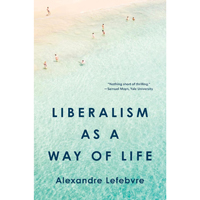

|
|
2024 May 24
Liberalism
Alexandre Lefebvre
Liberals say decent democratic countries must be as inclusive as possible. Religious conservatives see a slow and steady creep of liberal values into areas remote from politics.
I believe their assessment of the scope of liberalism is correct. Liberal ideals and sensibilities have become omnipresent in the public and background culture of western democratic societies.
Religious people get their values and moral sensibility from a church, faith, or religious text. Most religious nones should identify liberalism as the source of the values that underlie who they are.
Liberalism has a characteristic set of values. At its core are personal freedom, fairness, tolerance, reciprocity, self-reflection, and irony, all built on noble ideals.
As an observer of the United States, I see conservatives fearing their views will die out in the current culture. They resist liberalism and use the power of the state to advance their views.
The most vital political movements in the world today are not liberal. They claim to know what a life worth living is for citizens, are confident of support, and will use their powers to advance it.
Instead of talking up our strengths and virtues, we liberals bang on about institutions. Our opponents appeal to identity, meaning, purpose, and redemption.
Populism
David Brooks
American pessimism, hostility to elites, and authoritarian tendencies are all average.
The political climate in the United States and across the world is favorable for populists. Populism has emerged as the dominant global movement.
Europeans are bracing for the European Parliament elections next month. The parliament is likely to shift sharply to the right. Anti-Europe populist parties are likely to come out on top in the voting in France, Italy, Austria, Belgium, the Czech Republic, Hungary, the Netherlands, Poland, and Slovakia. Some 40% of European voters aged up to 35 have moved toward the right or far right.
American politicians are tossed about by global conditions beyond their control.
AR I tend to share Lefebvre's view of liberalism. I see it as a more or less secular (subject to his commentary) offshoot of Christianity. Populism, by contrast, is like Protestantism, a rude upstart in comparison but moved by mostly decent sentiments.
|
|

|
|
2024 May 23
The UK General Election
Financial Times
The UK government has seemed to be living on borrowed time. The Conservatives lag behind the opposition Labour party by almost 21 points in polling. With prices more than 20% higher than in 2021, the promise that things might be better tomorrow is thin gruel from a party in power for 14 years.
Parties need to address four main questions:
▸ How to resolve the strains in healthcare, education, policing, local government, and defence
▸ How to raise the necessary revenues and overhaul the tax system
▸ How to level up left-behind areas and revive productivity growth
▸ How to improve competitiveness and tap into new growth sectors
The UK needs a vision for its relationship with Europe and the wider world.
AR A lot to do, and neither main party is up to the scale of the challenge. Their campaign platforms are focused on the next 5−10 years, when generational thinking is required.
|
|
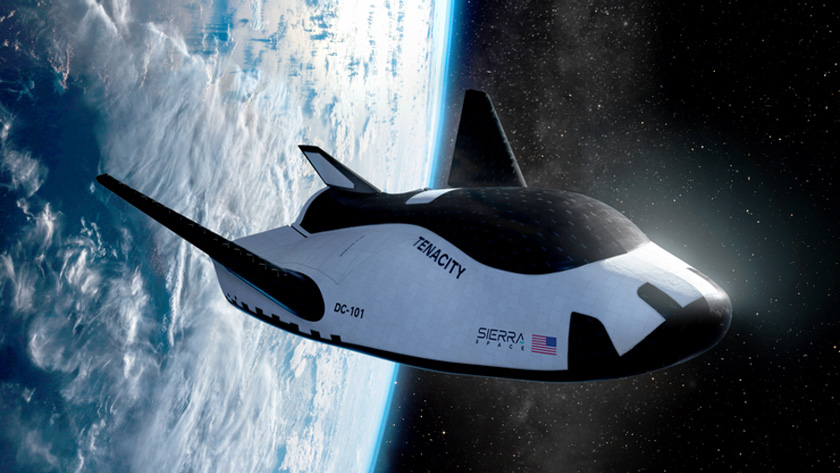
Sierra Space
Sierra Space's Dream Chaser is set to use its first trip to orbit to deliver supplies to the International Space Station later this year.
Dream Chaser is a lifting-body spacecraft that launches on a rocket and lands on a runway. It will carry about 5 tons of cargo
and could also make suborbital flights to deliver urgent supplies on Earth.
|
|

|
|
Optical Neural Networks
Amos Zeeberg
Computing with photons looks promising. Optical signals have more bandwidth than electrical ones, they can compute more in less time and with less latency, and they can do so using less energy.
An optical neural network (ONN) on a silicon chip encodes input data into beams of light and sends the beams through a series of gates. The ONN computes by repeatedly splitting the beams, changing their phase, and recombining them, then photodetectors measure them to show the result.
A new ONN called HITOP scales up throughput with time, space, and wavelength to push more data through the ONN faster, driving down cost. HITOP performs about 1 Tflops. The best Nvidia chips do 300 Tflops, but the HITOP energy cost is a thousand times lower.
A new chip-based ONN shines a laser onto part of the semiconductor substrate to change its optical properties. The laser maps the route for the optical signal to define a calculation. Since it is easily reconfigured, the model can be trained after installation on the semiconductor.
Optical computing is still in its infancy, but within a decade, an ONN could make some AI models a thousand times more efficient.
AR The field will be called photonics, by analogy with electronics. In future, the idea of computing by pushing crowds of electrons through resistive media will seem hopelessly clumsy. Orchestrating photons as they zip around at light speed will seem the obvious way to go − once we develop the skills to do so. Looking out further, photonic quantum computing will be a whole new world.
|
|
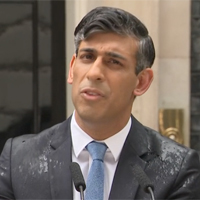
BBC
UK PM Rishi Sunak announces
July 4 general election
|
|
2024 May 22
Nuclear War
J P O'Malley
Nuclear War: A Scenario by Annie Jacobsen shows the prospect of nuclear war is still alarmingly real.
In December 1960, US officials convened in Nebraska to share a secret plan to hit Moscow in a pre-emptive first nuclear strike. The plan (SIOP) calculated that 275 million people would be killed in the first hour and that at least 325 million more would die from radioactive fallout within 6 months.
In June 1983, Ronald Reagan ordered a war game to predict the outcome of a major nuclear war. Large parts of the northern hemisphere would be left uninhabitable for decades, with 500 million people killed in the initial nuclear exchanges. This forecast led Reagan to reach out to the Soviets.
In October 1986, Reagan met with Soviet premier Mikhail Gorbachev at the Reykjavik Summit. The global nuclear weapons stockpile was then over 70,000. In July 1991, the United States and the USSR signed a treaty to reduce their deployed nuclear warheads to below 6,000 each by about 2020.
The nuclear winter following a war between the United States and Russia could kill 5 billion people.
Russia begins tactical nuclear weapon drills
Pjotr Sauer
Russian forces have started military drills near Ukraine simulating use of tactical nuclear weapons. Vladimir Putin ordered the drills earlier this month.
AR I used to think about the prospect of nuclear war in my teens, when the movie Dr Strangelove was new and RAND researcher Herman Kahn said "spasm war" would kill hundreds of millions.
Ever since then, "thinking the unthinkable" (in all its guises) has been my main preoccupation as a philosopher. A psychologist may see a link there.
|
|

Scarlett Johansson
|
|
2024 May 21
Sounds Like Scarlett Johansson
Alissa Wilkinson
In 2013, the movie her seemed like a fantasy. Its AI assistant Samantha was voiced by Scarlett Johansson. OpenAI CEO Sam Altman said he loved her.
At the reveal of ChatGPT‑4o, its AI assistant Sky sounded like Samantha. Altman posted the word "her" to his X account.
During the reveal, an engineer asked Sky to solve a math problem. When he scolded Sky for starting to solve the problem before even seeing it, she giggled and said: "Whoops, I got too excited. I'm ready when you are!"
When shown a written "I ♥ ChatGPT" sign, she said: "That's so sweet of you!"
AR Johansson twice declined when OpenAI asked her to be the voice of Sky. So I guess the judges will rule in her favor in the upcoming litigation. This is all good publicity for ChatGPT‑4o, but Johansson may be missing a trick here. I think she could make more money by licensing her voice to OpenAI than she would lose thru any likely reputational damage at being that voice.
More generally, lawyers worldwide seem likely to be more generous to content providers whose work is hoovered up by AI than is consistent with their likely financial loss. An AI trained from Johansson's voice could equally have been fed with a similar − or synthesized − voice. All the law will do is force expensive workarounds.
Open AI has now dropped the Johansson-like voice from the Sky voice options. Losers all round − except for the lawyers, of course.
|
|

|
|
2024 May 20
How AIs Think
Matthew Hutson
Explainable AI (XAI) can help explain AI systems.
Large language models (LLMs) power chatbots and are particularly inexplicable. Researchers probed an LLM that had 52 billion parameters to reveal which bits of the training data it used while answering questions. When they asked it whether it consented to being shut down, they found it drew on texts about survival to compose its response.
Some researchers interrogate LLM workings by asking the models to explain themselves. This approach resembles those used in human psychology. Treating an LLM as a human subject like this can illuminate sophisticated behaviors. Chain-of-thought prompting can get LLMs to show their thinking, but the models can confabulate their responses.
In causal tracing, researchers give a model a prompt and let it answer, then give it another prompt and watch it say something else. They then take some of the internal activations resulting from the first prompt and variously restore them until the model gives the first answer in reply to the second prompt. They can then edit what the model knows.
XAI is still work in progress.
What is thought?
Kate Douglas
Thinking is surprisingly hard to pin down. Even the experts are unsure about what thoughts are. Neuroimaging studies suggest we may never truly pin down how they manifest in the brain.
Cognitive neuroscientist Kalina Christoff: "Thought is a mental state, or series of mental states, that has some kind of content to it, with some personal attitudes toward the content, like an attitude of remembering or believing or imagining."
Thoughts are independent of any stimulus produced by the object of thought. Three streams feed into our consciousness to trigger them: exteroceptive (from the outside world), interoceptive (from the body) and conceptive (from the subconscious mind).
Christoff: "The mind emerges out of a physical substrate, the brain, and the relationship of emergence is not deterministic."
AR My first systematic attempt to think about thought was at Oxford in 1971. Back then, the topic was mired in a legacy of bad metaphysics in the Cartesian tradition. Starting some 20 years ago, neuroscience has been transformed by hard data and massive computational models.
Traces of the metaphysics remain (not least in work on the hard problem of consciousness), but generally the field has changed beyond recognition. Philosophy has given birth to a new science. Clouds of fog have dispersed. Yet the problem of thought remains.
|
|

AR
On Sunday afternoon, hiking over a hilltop overlooking Poole Bay, I waded barefoot through fields of buttercups
|
|

Warner Bros
her is a 2013 movie written
and directed by Spike Jonze:
Lonely man (Joaquin Phoenix)
develops relationship with AI
virtual assistant (voice by
Scarlett Johansson)
|
|
2024 May 19
Her
Manohla Dargis (2013)
She sounds young and friendly. For Theodore (Joaquin Phoenix), that voice (Scarlett Johansson) is a lifeline to the world, from which he has drifted apart since he separated from his wife.
Her is the unlikely yet plausible love story about a man, who sometimes resembles a machine, and an operating system, who very much suggests a living woman. Theodore runs the software on his home computer and phone. It calls itself Samantha.
Phoenix is an actor who excels at exquisite isolation. He plays wounded, stunted souls whose agonies are expressed in halting words and somatic contortions. His Theodore presents a harmless, defeated picture. Samantha saves him from solitude.
Written by Spike Jonze, her features plenty of talk and comparably little action. In her, the great question isn't whether machines can think, but whether human beings can still feel.
AR Last night I watched her again, for the second time, and the first time in over 10 years. It's as good now as it was then, understated but effective, a sharp portrait of a man who needed the help his OS gave him. One can read it as a proof that assigning sentience to future AI systems really won't be a problem; on the contrary, not doing so will be.
2024 May 18
New ChatGPT Is Her
Jeff Yang
OpenAI's latest version of its LLM is GPT‑4o. The lowercase "o" on its name stands for omnimodal: GPT‑4o can accept input in any combination of text, image, or audio, and can produce any combination of them as output.
GPT‑4o can comprehend human speech and respond in kind. It speaks with stunning fluidity and startling fidelity, interacting at the same brisk pace as humans do, in what will eventually be more than 50 different languages.
GPT‑4o can interactively provide wellness advice based on simple auditory cues, verbally explain how to solve a handwritten algebra problem step by step, and function as a real-time translator, interpreting between people speaking different languages.
The primary goal with GPT‑4o is enabling more natural human−computer interaction. GPT‑4o displays a personality that's close to human and surprisingly appealing, even when it glitches.
OpenAI CEO Sam Altman says his favorite sci‑fi movie is her, about a man who falls in love with a self-aware and constantly evolving AI assistant.
The race for an AI‑powered personal assistant
Madhumita Murgia
An AI assistant is a personalized bot to help you work, create, communicate, and interface with the digital world. They are among a flurry of new AI developments from Google and its AI division DeepMind, as well as Microsoft-backed OpenAI.
The new AI tools are multimodal: They can interpret voice, video, images, and code in a single interface, and also carry out complex tasks like live translations or planning a family holiday.
OpenAI CTO Mira Murati: "We're looking at the future of interaction between ourselves and the machines."
Google CEO Sundar Pichai says AI agents are intelligent systems that show reasoning, planning, and memory, and can think ahead and work across software and systems.
Apple is expected to be a major player in this race. OpenAI has sealed a deal with Apple to create a desktop app for Macs. Apple has a massive existing user base, with more than 2.2 billion active devices around the world.
Google DeepMind CEO Demis Hassabis: "Imagine agents that can see and hear what we do, better understand the context we're in, and respond quickly in conversation, making the pace and quality of interaction feel much more natural."
Meta chief AI scientist Yann LeCun: "We will be talking to these AI assistants all the time. Our entire digital diet will be mediated by AI systems."
AI safety man quits
Dan Milmo
Former OpenAI safety researcher Jan Leike has quit. He co‑headed superalignment, ensuring that powerful AI systems adhere to human values and aims. He quit days after the launch of GPT‑4o.
Leike: "Building smarter-than-human machines is an inherently dangerous endeavour. OpenAI is shouldering an enormous responsibility on behalf of all of humanity."
AR This development appears to realize the promise of the chatbots released last year. But it sounds like much more than a consolidation release. The threshold for widespread user acceptance comes with speed, fluency, and personality. All now nailed.
The next step will be to go for the humanoid form factor. Building the chatbots into android bodies will bring another new level of user acceptance (or protest). By then, the bots will have conquered AGI territory and we'll be in the promised land.
|
|

|
|
2024 May 17
Climate Change: Economic Damage
Oliver Milman
In a new working paper, researchers say a 1 K increase in global temperature leads to a 12% decline in global GDP. Climate scientists predict a 3 K rise by 2100 due to ongoing burning of fossil fuels.
A co-author of the paper, Harvard economist Adrien Bilal: "There will still be some economic growth happening, but by the end of the century people may well be 50% poorer than they would've been if it wasn't for climate change."
Bilal says purchasing power would already be 37% higher than it is now without the global heating seen over the past 50 years. The new paper, not yet peer-reviewed, calculates the social cost of carbon emissions to be about $1 per kg.
Even with steep emissions cuts, climate change will have a heavy economic cost. If global heating is restrained to little more than 1.5 K by 2100, the GDP losses are still around 15%.
Rising temperatures, heavier rainfall, and more frequent and intense extreme weather are projected to cause $38 trillion of destruction each year by 2050.
AR We cannot expect neoliberal governments in capitalist national economies to orchestrate an effective response to the challenge of climate change. Only more authoritarian governments, acting together in the global self-interest, can reasonably be expected to do so. Sadly, this "solution" is hopelessly utopian and altogether unlikely to be implemented at sufficient scale in time.
Perhaps this challenge will be existentially damning for human civilization as we know it. Like those Easter Islanders who cut down all their trees for vanity projects and lost the basis for their survival, humans in this century will be decimated and the survivors driven back to a more primitive lifestyle and forced to recapitulate recent progress on more solid foundations.
|
|

AR
Peace in rural Dorset on Friday — priceless
|
|

|
|
2024 May 16
Civil War
Manohla Dargis
Civil War shows the United States at war with itself. The president is holed up in the White House. The Western Forces lead the charge against what remains of the federal government.
The movie is a nightmare stoked by memories of January 6. Director Alex Garland explores the unbearable if not the unthinkable. When the movie opens, the fight has been raging for an undisclosed period, with the divisions behind the conflict left to your imagination.
Kirsten Dunst plays Lee, a war photographer alongside her friend, reporter Joel (Wagner Moura). We meet them in New York, milling through a crowd anxiously waiting for water rations, when a bomb goes off. By then, aspiring photojournalist Jessie (Cailee Spaeny) is also in the mix.
Lee, Joel, Jessie, and veteran reporter Sammy (Stephen McKinley Henderson) pile into a van and head to Washington. Joel and Lee are hoping to interview the president, and Sammy and Jessie are riding along, Sammy as the wise old man, Jessie as the eager upstart.
Civil War is brutal. The carnage feels incessant, palpably realistic, direct, at times shockingly casual and unsettling. The premise makes the movie tough going.
AR I saw the movie for the third time today. I find it well made and effective. The unexplained background, the brutally violent gunplay, and the wistfully tragic tone of the descent into hell are all good choices to flesh out the promise of the premise of the nightmare.
The obvious cinematic comparison is with Francis Ford Coppola's 1979 Vietnam epic Apocalypse Now. Much of the construction and ludic irony look like conscious homage to Coppola's classic. But the fictional setting, the focus on the personal drama, and the brief screenplay are contrasts.
A more intriguing comparison is with the 1969 road movie Easy Rider with Peter Fonda and Dennis Hopper. The episodic action along the road trip and the use of mood music seem parallel. But this time the utter contrast of tone and topic suggest a darker conclusion.
America has changed radically in the 55 years between 1969 and 2024. The year of Apollo and Woodstock was a time of happiness and hope in America, despite Vietnam and race riots. The year 2024 looks much bleaker, as Garland's nightmare reflects all too well.
|
|

|
|
2024 May 15
Breasts
Emine Saner
Sarah Thornton's new book Tits Up is a deep dive into our fixation with boobs. Writing it has transformed how she views breasts: "I did not realise how deeply patriarchal even my own view of breasts was. I was dismissing them as dumb boobs."
She doesn't want to be a killjoy: "But the sexualisation of breasts causes many women a lot of stress, anxiety and dissatisfaction. That is a real shame, if not a serious political problem."
Thornton traces the sexualisation of breasts to France: "You need breasts to be disconnected from their primary use in order for them to be fully eroticised, and the first real cultural evidence of that is in French Renaissance painting."
Thornton: "I genuinely believe that the dismissal of our breasts for the complex things they are is a serious problem for women."
A respect long overdue
Lucinda Rosenfeld
Sarah Thornton says women's breasts are unjustly sexualized and trivialized. She argues that the derogatory way western culture views tits helps perpetuate the patriarchy.
She says breasts have been seen as "visible obstacles to equality, associated with nature and nurture rather than reason and power" and asks readers to reimagine the bosom as a site of empowerment.
After writing a survey of the new-millennium art world, Thornton arrived at her new topic after undergoing a double mastectomy in 2018. Then she hit the research road.
She interviews a diverse group of strippers, feminist sex activists, and performance artists, then concludes that strippers' breasts might be seen less as sex toys than as salaried assistants. She visits the women at a nonprofit milk reservoir and reflects on the economics of jugs.
She visits a bra designer and decides it's past time to stop hiding our nipples. She visits a plastic surgeon and concludes that breast alterations are outside the logic of resistance or submission. She attends a California retreat for women to practice alternative spirituality.
A final thought: "Women have no federal right to breastfeed or to obtain an abortion, but we have the right to fake tits."
AR I agree that this is a serious political issue on which cool reason should prevail. Viewing breasts as sex toys is surely a pathology that should frame the viewer as silly and infantile. Public breastfeeding and nipple exposure should be indulged without censure.
I know this is a counsel of philosophical perfection that may demand too much of men who lack the composure to stay cool. But the weakness of some men should not be accepted as a reason to curtail the freedom of women on this most basic of issues.
|
|
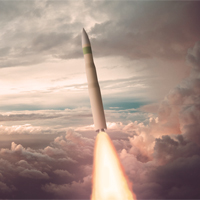
USAF
LGM-35 Sentinel GBSD
US nuclear arsenal
modernization program:
$2 trillion plus
|
|
2024 May 14
European Fears
Nathalie Tocci
Fear is pushing European governments and institutions to make poor choices in world affairs:
▵ Fear of nuclear Armageddon or Russian implosion explains their inconsistency on Russia's invasion of Ukraine. Instead of supporting Ukraine more when they fight back well, European governments do more when Ukraine is struggling.
▵ Fear helps explain their approach to Africa and the Mideast. European demographics should lead to a rational debate on fostering legal migration, but instead fear explains the current scramble for unethical deals to stop migration to Europe.
▵ Fear haunts them in the Israeli−Palestinian conflict. The EU is a major trade partner for Israel and the Palestinians' biggest aid donor, but fear of antisemitism prevents criticism of Israel. Europeans see a human catastrophe but fail to act.
▵ Fear of changes in both America and China has led to paralysis in forming consistent European policies toward them.
Europeans need to rethink their role in world affairs.
AR All this is overly one-sided criticism. Increased timidity is a rational response to a diminution in the European presence, both economic and demographic, in world affairs. Vainglorious attempts to deny or undo this diminution are still all too evident in some national responses.
A shared European perception of the dimensions of this diminution would be welcome for the sake of consistency. As it is, states like Hungary and the UK nurse nationalist delusions that make them outliers. The only continent-wide regimentation is economic, not military.
Fear of US disengagement from NATO and Europe are rational. Fears of Russian disruption of Europe and the cost of responding are rational. Fears of chaos due to mass migration, resource shortages, environmental destruction, and climate change are all rational.
|
|

|
|
2024 May 13
Dreaming
Rahul Jandial
Dreams may play a bigger role in our lives than we thought.
For decades, dreaming studies focused on rapid eye movement and concluded that we spend about two hours a night dreaming. But researchers at sleep labs find dreaming is possible at any stage of sleep. We may spend almost a third of our lives dreaming.
Dreams are the product of changes the brain undergoes each night. The rational, executive network in the brain is switched off, and the imaginative and emotional parts are dialled way up. The dreaming mind has free rein in a way that has no parallel in our waking lives.
The sleeping brain burns glucose and pulses with electricity to produce dreams. Attempts to explain their evolutionary benefits include keeping our minds nimble, playing wild scenarios to help us understand the everyday, delivering therapy, and rehearsing threats.
The dreaming brain shuts the body down through a form of paralysis. People who have had enough sleep but are dream deprived start dreaming as soon as they fall asleep again. In the absence of sleep, vivid dreams can even emerge into waking life.
The brain needs to sleep. We need to dream.
AR I see dreaming as the mental flipside of electrical activity in the brain. The electrical music manifests phenomenally as free imagery, unlinked from bodily movements. This may be a basic requirement for the conscious operation of the neural network during waking hours.
The requirement may map directly to a corresponding need in present and future artificial neural networks. Such a temptingly plausible mapping invites the speculation that ANNs have inner phenomenology − minds − just as we do. Like us, they may be conscious.
|
|

|
|
2024 May 12
Dyson Spheres
Jonathan O'Callaghan
Two surveys of millions of stars in our galaxy have revealed mysterious spikes in IR radiation from dozens of them. This could be evidence for alien civilizations harnessing energy from their stars using Dyson spheres.
A Dyson sphere is a hypothetical structure surrounding an entire star to absorb its energy. It could enable advanced aliens to draw huge amounts of power. If such objects exist, their IR signature could alert us to the presence of alien life.
Two teams of astronomers combined data from the ESA Gaia satellite with IR survey results from ground and space telescopes. Each team analyzed the same 5 million stars from the combined datasets, and both turned up unexplained signs of excess IR in 60 of them.
Among red dwarfs within 900 ly of Earth, 7 were up to 60 times brighter in IR than expected. This excess would have been caused by something with a temperature of up to 400 C, with up to a sixth of each star obscured, suggesting a variant of the idea called a Dyson swarm. The other candidates were found among larger stars at distances of up to 6500 ly from Earth.
A natural explanation that could produce the IR spikes is that the stars are surrounded by hot, planet-forming debris disks, but most of the stars found appear to be too old for this. The JWST could explore these stars.
AR Dyson spheres and swarms have intrigued me for decades. They would be the best giveaway for advanced alien civilizations, given our present powers of detection. Freeman Dyson was quite a visionary on such future space technology.
|
|

⦿ Martin Meissner / AP
Nemo: "I broke the code"
|
|

|
|
2024 May 11
Eurovision Song Contest
Malmö, Sweden
Switzerland won the 68th Eurovision song contest. Swiss singer Nemo won with the song The Code.
AR It was a great show. And Nemo was a worthy winner.
|
|

|
|
2024 May 10
UK Life Gets Worse
George Monbiot
Life in the UK is in a doom loop. There was a time when Brits believed that a rising economic tide would lift all boats. Everybody would have a good home, jobs would get better, we would enjoy greater economic security, education and healthcare and health would improve, the UK would get cleaner and greener, and governance would get better.
Instead almost everything has gone to shit. Poverty, morbidity, educational exclusion, wretched housing, crumbling infrastructure, and bad jobs have all returned with a vengeance. Newcomers include environmental chaos, political dysfunction and misrule, impunity for the powerful, cruelty toward the powerless, and "woke" wars.
The reason for this horror show is neoliberalism. This doctrine says our wellbeing is best realised through the market. It will determine who succeeds and who does not, and everything that impedes the creation of this "natural order" should be shoved aside. Neoliberalism has dominated life in the UK for 45 years.
Neoliberalism is the means by which rulers seek to solve the problem of democracy. It works through the state, the force behind market forces, the whip enforcing economic freedom. Governance in the UK feels like one long trick played on the public.
AR Hard truths that explain the demise of the Conservative party, compounded by the folly of Brexit, and the rise of the Labour party. Whether the next government will at last abandon the delusion of market fundamentalism, time will tell. It's hard to be hopeful in face of so many years of misrule at the behest of plutocrats with tax havens.
|
|

|
|
2024 May 9
New AI Tools Predict How Biomolecular Structures Assemble
Yasemin Saplakoglu
Knowing what proteins look like is critical to untangling how they function and malfunction. Researchers can now use machine learning algorithms to predict the folded shapes of not only proteins but other biomolecules with high accuracy.
Google DeepMind's AlphaFold3 can predict the structures of proteins, DNA, RNA, ligands, and other biomolecules, either alone or bound together in different ways. The tool follows a similar updated algorithm, RoseTTAFold All-Atom.
The previous versions of these algorithms predicted protein structures. AlphaFold2 unlocked an immense world of previously unknown protein structures. A competing algorithm, RoseTTAFold, also predicted protein structures from sequence data.
RoseTTAFold Diffusion can be used to design new proteins. AlphaFold Multimer can look at the interaction of multiple proteins. Based on a limited data set, AlphaFold3 appears to be more accurate than RoseTTAFold All-Atom.
Google will make AlphaFold3 accessible by offering a new server to biologists running it. Predicting biomolecular structures takes a lot of computing power.
Accurate structure prediction of biomolecular interactions with AlphaFold3
Josh Abramson et al
AlphaFold3 can predict the joint structure of complexes including proteins, nucleic acids, small molecules, ions, and modified residues. The model shows that accurate modeling across biomolecular space is possible within a single unified deep learning framework.
AR This sort of thing is what the new AI tools do best. Any model for natural-language usage is soon involved in the hotly embattled but illogical human politics surrounding diversity, inclusion, and equity. Outside science, AI results need human curation.
|
|

|
|
2024 May 8
Global Heating
Damian Carrington
Hundreds of leading climate scientists expect global temperatures to rise by at least 2.5 K this century.
A Guardian survey shows that almost 80% of respondents from the IPCC foresee at least 2.5 K of global heating above preindustrial levels. Almost half, including more than half of those under 50, anticipate at least 3 K. Only 6% say the 1.5 K limit will be met.
The climate crisis is already damaging lives and livelihoods around the world, with only 1.2 K of global heating on average over the past 4 years. Current climate policies leave the world on track for about 2.7 K of heating this century.
A scientist: "We live in an age of fools."
AR We live in an age where global governance is still in the hands of national politicians with short time horizons. We need to put more power in the hands of scientists. Perhaps a suitable future AI system can decide which powers to allocate to them.
|
|
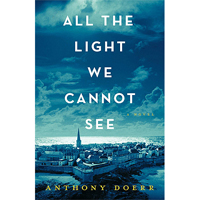
|
|
2024 May 7
All the Light We Cannot See
Anthony Doerr
Marie-Laure lives in Paris near the Museum of Natural History, where her father works. When she is 12, the Nazis occupy Paris and father and daughter flee to the walled citadel of Saint-Malo, where Marie-Laure's reclusive great uncle lives in a tall house by the sea. With them they carry what might be the museum's most valuable and dangerous jewel.
Anthony Doerr is the author of six books and is a two-time National Book Award finalist. His fiction has won five O Henry Prizes, the Pulitzer Prize, and the Carnegie Medal.
AR I found this a wonderful novel. Its form and style are thoroughly readable, its story is compelling and beautifully organized, and its characters are deftly drawn and eminently credible. Altogether, I would compare this novel with the best of Günter Grass but rate it a notch higher.
|
|

|
|
2024 May 6
Quantum Reality
Michael Brooks
We are starting to view the cosmos as a quantum whole linked by entanglement.
Entanglement defies common sense. Get two quantum particles to interact in some way, then perform a measurement on one and do the same on the other. In the right circumstances, you find the properties of the two particles are correlated.
In Bell tests, two entangled photons are generated by the same source and sent to Alice and Bob. They each randomly choose to measure the spin of their photon along one of three directions, then compare observations to assess the correlation. Quantum correlations violate the Bell inequality.
Bell inequalities have been violated in countless laboratory experiments. Entanglement has been demonstrated between a wide range of entities. That might change if we do Bell tests inside a particle collider at a trillion times higher energy.
Collider experiments could change how we see space. Traditional Bell tests examine entanglement over large distances, but correlations over tiny distances are equally interesting. Collide tests at the fm scale might tell us space emerges from entanglement.
High energies bring a new world of particles into play. When particles are accelerated close to the speed of light, some of the beam energy is turned into virtual particles. These fleeting disturbances in the fields inside the collider are involved in a range of fascinating phenomena.
Collider experiments could even solve the measurement problem.
AR It certainly seems worth testing entanglement at the fm scale, but I doubt it will reveal anything new. I would expect space to dissolve at much smaller distances, way down near the Planck scale. Down there, I'd expect Bell correlations to go haywire.
2024 May 5
The Elephant and the Blind
Thomas Metzinger
Views of meditators:
"Space expanded and time no longer played a role, there was only pure being, a pure feeling of happiness."
"It reveals itself as pure presence, no thoughts, no physical sensations. A feeling of fullness and emptiness at the same time."
"The perception of the body disappears .. One notices the disconnection only when consciousness realizes that it moves completely free as light in an infinite space."
"There was no self-experience, but sounds were perceptible. My body schema no longer existed .. no experience of time, no words."
"There was a sensation of 'being turned inside out,' as if I had slipped through the eye of a needle, and everything dissolved."
AR MIT Press has made the text Open Access.
2024 May 4
Pure Consciousness
Alun Anderson
The Elephant and the Blind
The experience of pure consciousness: philosophy, science, and 500+ experiential reports
Thomas Metzinger
Thomas Metzinger: "Consciousness can exist not only in the absence of thought and sensory perception, but even without time experience, without self-location in a spatial frame of reference, and without any egoic form of bodily self-consciousness."
Metzinger says we already know what pure awareness is, but says consciousness "is simply too close for us to see, too profound for us to fathom, too simple for us to believe, or even too good for us to accept" and advises we develop a Bewusstseinskultur.
AR This is a must-read for me, even at over 600 pages. I discussed consciousness with Metzinger on several occasions earlier this century and hold him in high esteem as a thinker. His big and hard book Being No One (2004) influenced me greatly some 20 years ago.
|
|

VKW
At a friend's country house in a village near Łódź, Poland, May 1
|
|

|
|
2024 April 22 — May 2
A Visit to Poland
Andy Ross
On April 22, I flew to Krakow airport to meet my old friend Violetta at her home city of Łódź. After a night in a university hotel in Krakow and a few hours of sightseeing in the heart of the city, we took a train to Łódź. Over the course of the next week, I explored numerous museums and historic sites in the city, enjoyed restaurants, an evening of music by Beethoven and Elgar at the Filharmonia Arthur Rubinstein concert hall, an evening of modern ballet at the Łódź Grand Theatre, and time with Violetta and her friends. On April 30, I made a day trip to Warsaw and walked around awhile and then watched a military ceremony in front of the Royal Castle that culminated in a speech by President Andrzej Duda on the Polish constitution. On May 2, I flew back to the UK.
|
|

A24
|
|

|
|
2024 April 20
Civil War
Rotten Tomatoes
Matt Hudson: "[Alex] Garland delivers a thrilling experience and a lot of ideas for audiences to puzzle over while offering no definitive answers .. a must-see movie."
Victoria Luxford: "Garland .. believes his films are more about the present than they are visions of the future .. Civil War is a stark warning to a divided political landscape."
Ryan Oquiza: "Civil War asks whether photojournalism can enact change or just breed ruthlessness during times of conflict."
Peter Gray: "This film will undoubtedly give rise to debates, and there's no taking away that there's an impact here, however one views it."
Bob Grimm: "A little too close to home. Ending is a bit silly, but most of the film hits hard."
Christopher Machell: "Civil War, though imperfect, is a biting, satirical blockbuster that is as much about the alienation of modern media as it is about imagining a second American Civil War."
Lael Loewenstein: "It reminded me of some of the great films about journalists."
Tim Cogshell: "As a dramatic action film about journalists covering a war, this is good."
Dorothy Woodend: "With beauty and horror, the anticipated new movie is a visceral excavation of America's darkest impulses."
Lauren Veneziani: "Kirsten Dunst and Cailee Spaeny give compelling performances in one of the most thought-provoking and intense films of the year."
Marianna Neal: "It delivers some masterfully executed, incredibly tense and upsetting sequences, but all of that rings hollow .. Civil War is a visually impressive exercise in saying nothing."
AR I saw Civil War as a classic American road movie, elegizing the coming of age of a young war photographer in the company of a hardened veteran. This pair, plus a couple of others, drive across a divided America to Washington DC, where they witness the violent end of a presidency.
Unfortunately for the impact of this narrative, the movie's attempt to present the horrors of war overlaid the entire production with such overwhelmingly visceral scenes of atrocities and firefights that the underlying theme faded into mere framing for hardcore war porn. I'm startled that we're all apparently so accepting of such porn the censors felt free to give the film a "15" rating.
What remained when the noise and the action were over was a soothing blank. The political message was almost effaced − yet impossible to miss, despite the movie's excessively sketchy and allusive presentation of the background and motivation for the thematized war scenes. Anyone familiar with political commentary during dangerous historical episodes will see the signs.
At a time when Donald Trump threatens a return to the White House, no viewer of Civil War will miss its implicit warning. Trump America could end in hideously violent chaos. Ignore this warning, and the movie becomes an extreme exercise in what Germans call Effekthascherei.
|
|

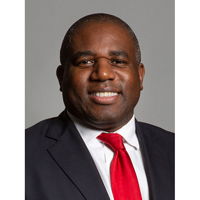
Houses of Parliament
Rt Hon David Lammy MP
|
|
2024 April 19
Brexit Is Not Secure
Mike Galsworthy
UK shadow foreign minister David Lammy says a new Labour government must seek a new geopolitical partnership with the EU based on a security pact.
This is surely the right starting point if Labour is going to start rebuilding bridges with the EU. Europe is under threat. The common defence of Europe is a shared interest.
The delusions of 2016 are dead. In 2024, British security includes the defence of European borders and the protection of our democracies, cybersecurity, values, environment, and climate.
Lammy: "Labour will seek to improve the country's trade and investment relationship with Europe .. a Labour government would not seek to rejoin the EU, the Single Market, or the Customs Union."
For now, the Labour party aims to win the election. Once in office, it must confront the reality that Brexit is untenable as a geopolitical position.
AR Galsworthy is right. Brexit has drastically decreased the security of the UK and betrayed friendly neighboring members of the EU. A speedy return of the UK to the EU is the best remedy.
A New Philosopher
Kyle Chayka
Byung-Chul Han published In the Swarm in English in 2017. Readers have embraced him as a sage of the Internet era. Han puts words to our prevailing condition of digital despair.
Born in 1959 in South Korea, Han originally studied metallurgy in Seoul, then moved to Germany and switched to philosophy. He began teaching in 1994 in Berlin and has rarely traveled outside Germany.
His breakout work was The Burnout Society, originally published in German in 2010. He diagnosed the violence of positivity deriving from overproduction, overachievement, and overcommunication. His ideas struck a chord with readers who dealt in aesthetics.
Han laments the decline of storytelling. His telegenic quality belies his isolation from the media ecosystem. He says he writes three sentences a day and spends most of his time caring for his plants and playing Bach and Schumann on the piano.
Han: "The digital screen determines our experience of the world and shields us from reality."
AR A philosopher in the tradition of the Frankfurt School, by the sound of it. His work won't cut ice in the Anglo-American analytic community. Still, I may read a volume or two just to get the flavor.
|
|
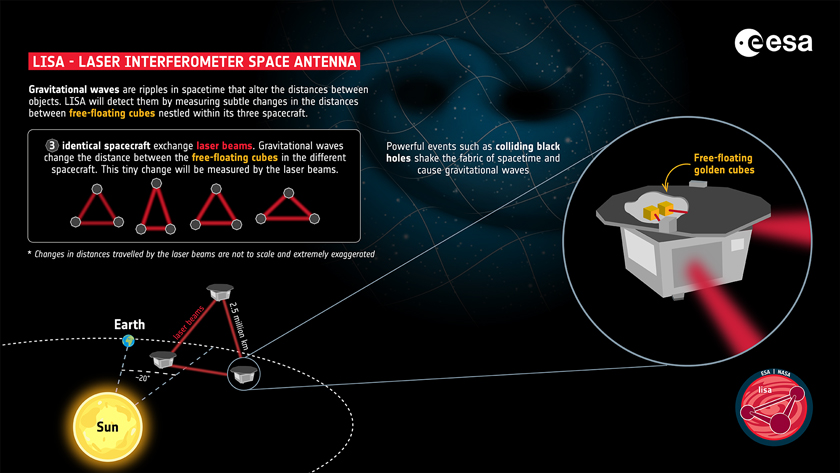
ESA
|
|

|
|
2024 April 18
LISA
Quanta
The Laser Interferometer Space Antenna (LISA) is scheduled to fly in the 2030s. ESA is pursuing the project alone after NASA bowed out in 2011. This January, ESA gave LISA the go‑ahead.
LISA may hear primordial gravitational waves. Its three spacecraft will form a triangle with arms 2.5 Gm long in a heliocentric orbit about 50 Gm from Earth, bouncing lasers off the golden cubes kept in free fall within each craft to feel for ripples in spacetime.
LISA will detect ripples by using lasers to measure the distance between the craft. A gravitational wave stretches and contracts spacetime and changes the arm lengths and hence the interference of the laser beams. LISA will be far more sensitive than LIGO.
LISA will observe gravitational waves with wavelengths between about 30 km and 30 Mm. This wavelength band covers the expected gravitational waves generated in the first moments ABB. LISA is poised to catch waves created from 100 ps to 10 as ABB.
Gravitational waves from the very early universe will echo from every direction, from every point in space, all at once, as a background gravitational hum.
AR I wish LISA well and hope I live long enough to see its first results. LISA may be able to do for gravitational wave astronomy what the Hubble space telescope did for visible light astronomy.
I hope LISA will be able to map the primordial waves well enough to offer clues as to whether the cyclic universe scenario championed by Roger Penrose can contest the Big Bang orthodoxy.
|
|


Google
|
|
2024 April 17
AI Threatens Translators
Ella Creamer
More than a third of translators have used generative AI to support their work. More than a third have lost work due to it. More than twice as many say it will cut their future income.
Translator Thomas Bunstead: "Literary translation remains in the hands of humans. The work that has presumably been handed over to AI will be the kind of uncomplicated bread-and-butter stuff which doesn't require so much nuance."
Translator Nichola Smalley: "Perhaps the people translating crime and romance novels who are currently getting less work due to AI will all start getting into the complex stuff and we'll all be fighting for space in that niche."
Translators Association co-chair Ian Giles: "I'm certain that the act of creative and literary translation will live on in one shape or another."
AR Another job category lost to automation. But there'll always be a market for translators who are inspired enough to produce work with its own literary value.
|
|

|
|
2024 April 16
The Quantum Multiverse
Karmela Padavic-Callaghan
The quantum multiverse could be big. In the Copenhagen interpretation, the wave function describes all possible states of an object before it is observed, an act that collapses the wave function. In the many-worlds interpretation, each quantum state in the wave function is real in a parallel world.
In a new interpretation, an observer is a collection of particles, with behavior determined by how energy is structured across the system. An algorithm divide systems into subsystems. A subsystem is a view of the world if the interactions between subsystems lead to it becoming classical.
An interaction between you and your breakfast gives rise to one realm made up of many worlds, but more realms of worlds arise from less intuitive divisions of your world into subsystems like your cup and some faraway celestial object, or an even more odd division. All this enlarges the multiverse.
The algorithm still contains assumptions, like how long it takes for a subsystem to become classical. There are different ways to quantify when a system is non-quantum enough to be considered classical. The questions remain unresolved.
AR So the multiverse is the set of worlds obtained by making the Heisenberg cut at all physically possible places, leading to an exponentially larger set than that obtained by making the cut around humans (in each of our multiverse variants) as privileged observers.
Formally speaking, the extension of the theory to allow all possible cuts is a natural move, consistent with the demotion of the (conscious) observer in modern interpretations of quantum theory following due appreciation of how decoherence reframes the "collapse" story.
The main problem I see here is that the size of the new multiverse suggests that we should regard it as an unhelpful illusion generated by our overly schematic formalism and hope that a more fully developed model will zoom in with more explanatory depth on our lived reality.
As sketched above, the new multiverse begins to resemble the vast possibility space of string theory, where we can see the result as a meltdown of that theory. If the formalism allows anything, its failure to make predictions voids its claim to be a scientific theory.
|
|

|
|
2024 April 15
AI Mathematicians
Alex Wilkins
Mathematical breakthroughs are feats of inspired reasoning and creativity. Mathematicians find fundamental relationships and principles by studying abstract objects and concepts. Pure math requires sophisticated reasoning, intuition, and creativity.
Mathematicians use computers for brute force calculations. Even deep-learning neural networks have been unable to muster much in the way of mathematical reasoning. But a transformer neural network might be made into a more mathematically literate tool.
DeepMind researchers built an LLM to write solutions to maths problems in the form of computer programs and combined it with a system to rank the programs by performance. Those that work best are fed back to the LLM, which iterates until it discovers something new.
AlphaGeometry tackled complex geometry problems from the International Mathematical Olympiad (IMO). The IMO requires enormous mathematical creativity. AlphaGeometry's transformer model performed almost as well as the best humans.
Formalizing pure math is hard work. For many mathematicians, the understanding and reasoning that they rely on is uniquely human. An AI that can do math as well as the best human mathematicians would be a big stride toward AGI.
AR I see no reason to dispute this view of the matter. Math is currently beyond AI, but I would expect reasonable extrapolations of AI progress to reach it and substantially digest it within 10 years or so. Then math will be like chess or Go, AI territory.
|
|

|
|
2024 April 14
The Strong Force
Stanley J Brodsky, Alexandre Deur, Craig D Roberts
The strong force binds quarks together inside protons and neutrons and joins those nucleons into atomic nuclei. Its coupling, αs, is poorly understood.
QCD is too complicated for standard calculations. The strong force boson, the gluon, carries color, and its self-interactions quickly get out of hand. But we can now calculate aspects of QCD analytically from first principles.
The quantum vacuum is full of particles that appear and disappear in fluctuating clouds. Interactions with these virtual particles can cause a force to depart from its classical behavior because of quantum loops. Quantum loop corrections determine how αs changes with the distance.
Its value changes by orders of magnitude and increases with distance. It grows so much that we never find a single quark by itself. Interactions between quarks and gluons and between gluons and gluons are weak at short distances.
The coupling becomes too big for standard calculations at distances beyond 1 fm. But new calculations show that as the distance grows, αs becomes constant.
Almost all the visible mass in our universe comes from the strong binding energy inside protons and neutrons. The quarks and clouds of gluons in them are bound with energy that makes up 99% of the mass. The Higgs mechanism adds the remainder.
QCD is the first full quantum field theory that predicts only finite quantities.
AR This is definitely an advance. With QCD, for all its notorious difficulty, we can avoid the infinities that plagued QED. Those infinities admittedly yielded to Feynman's sorcery, but they left us feeling unhappy that the mathematical challenges were being brushed under the carpet.
|
|
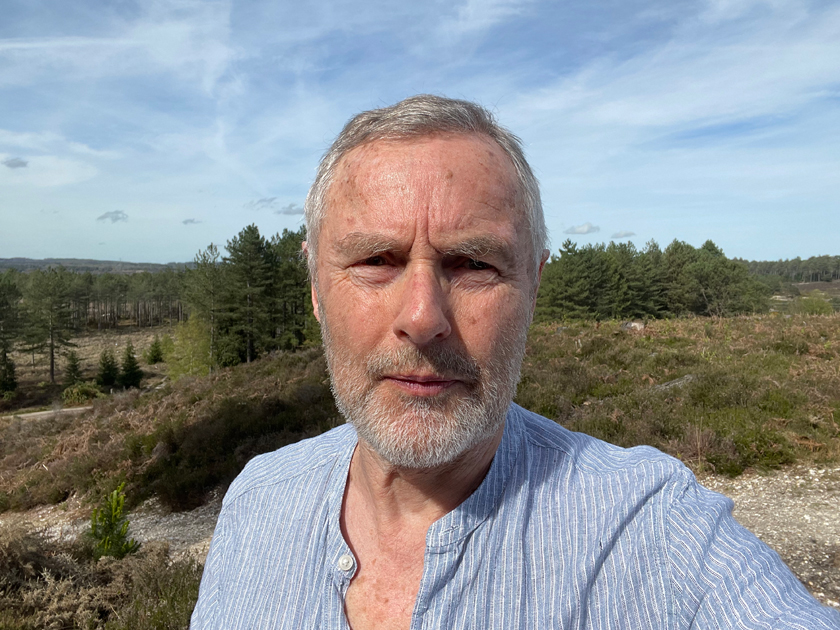
AR
Enjoying time out in nature, 2024-04-12
|
|

|
|
2024 April 13
Grokking Data
Anil Ananthaswamy
An ANN that trains for much longer than usual can show understanding and ace any test data in a phenomenon called grokking.
A machine learning model transforms a given input into a desired output. The learning algorithm looks for the best function to do that. As a network trains, the discrepancy between the expected output and the actual one starts falling for training data. This discrepancy, the loss, also starts going down for test data. Then the model starts to overfit, and the loss on test data starts to rise.
A transformer ANN was trained to do different kinds of modular arithmetic, but the team forgot to stop the training. As it continued to train, it suddenly became accurate on unseen data. The model seemed to have found an analytical solution. The ANN had grokked.
Grokking arises from an internal transition from memorization to generalization. As it memorizes, parts of the ANN form circuits for the general solution. The two algorithms compete, but the generalizing algorithm wins. When the ANN has learned the generalizing algorithm and removed the memorizing algorithm, we get grokking.
Research on grokking is still in its infancy.
AR I like this "grokking" term (from Robert Heinlein). If our humanist scruples are too much to let us admit that ANNs might understand anything, we can bug out and say they grok things. We can leave it to the philosophers to decide precisely when grokking graduates into true human understanding.
|
|
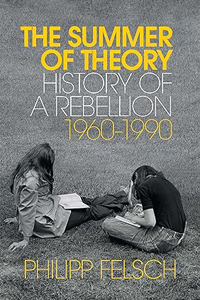
|
|
2024 April 12
Theory
Peter E Gordon
Theory was a term for various intellectual movements imported from the European continent. Its high avatars were Michel Foucault, Jacques Derrida, Jacques Lacan, and Louis Althusser.
Theory ignited passionate debate in Germany. In the film Der lange Sommer der Theorie (2017), we follow Lola as she traverses modern Berlin and conducts interviews with prominent German theorists such as Philipp Felsch, the author of The Summer of Theory (2021).
Felsch tells the history of the German passion for French theory. He is a brilliant stylist and his book is a joy to read. It takes intellectuals less seriously than they like to take themselves, but with such deftness and wit that one seldom fears the ideas have suffered distortion.
In the 1960s, when German students began to rebel against the culture of the Wirtschaftswunder, some looked for guidance to the Institute for Social Research (popularly called the Frankfurt School). With its Marxist theoretical orientation, the Institute inspired the German left.
Suhrkamp Verlag published books in philosophy and social theory that embodied the new German ethos. Suhrkamp published all the major titles by the Institute's members and won a wide readership for its academic series of paperback volumes bound in a uniform dark blue.
The waning of Marxist theory left a vacuum. Friedrich Nietzsche now appeared to German readers in a new and unfamiliar light. Renewed interest in his philosophy introduced a spirit of playfulness into German philosophical discussion that Felsch describes as a liberation.
French theory was a fashion. The practice of reading difficult texts is disappearing. People are cocooning themselves in the private glow of their own digital cosmos.
AR I too was fascinated by the murky depths of "theory" back then. I recall buying several of the Suhrkamp blue books when I was in Berlin in 1974. But I outgrew the fad later in the decade when I gravitated back to math and physics.
|
|
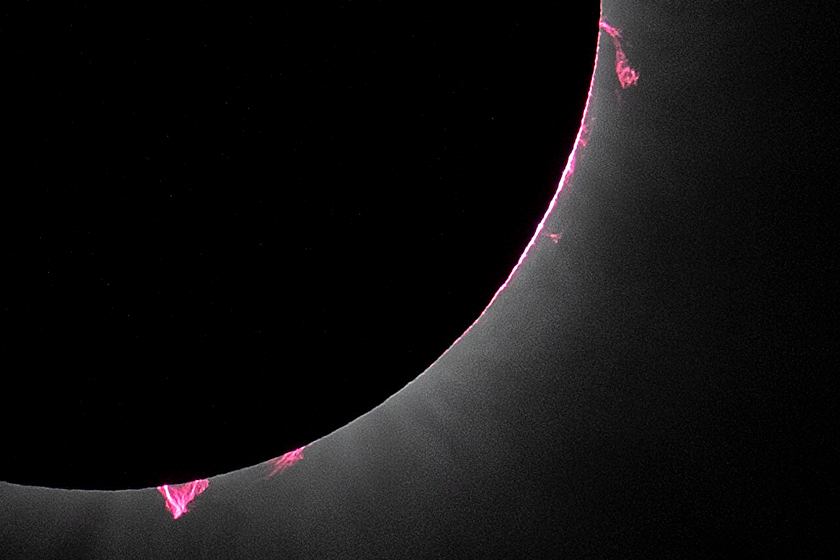
⦿ Keegan Barber/NASA
Solar prominences during total solar eclipse, Dallas, Texas, 2024-04-08
|
|

|
|
2024 April 11
Wigderson Wins Turing Award
Stephen Ornes
Avi Wigderson is the winner of the 2024 Turing Award for his foundational contributions to the theory of computation. He revealed deep connections between mathematics and computer science.
Wigderson asked whether you can convince someone that a mathematical statement had been proved without showing how. With others, he laid out the conditions showing that if a statement can be proved, it also has a zero-knowledge proof.
Wigderson linked computational hardness to randomness. Algorithms that employ randomness can vastly outcompete their deterministic alternatives. "But the larger question was whether randomness can always be eliminated efficiently or not."
Wigderson helped prove that if any natural hard problems exist, then every efficient randomized algorithm can be replaced by an efficient deterministic one. Any hard problem can be used to build a pseudorandom generator.
Wigderson: "Basically, any natural process is an evolution which you can view as computation, so you can study it as such. Almost everything computes."
AR The appearance and effects of randomness outline an intriguing field of study. The Kolmogorov definition of randomness raises more questions than it answers. Gregory Chaitin explored some of them in the context of the significance of Gödel's theorems in computer science.
|
|
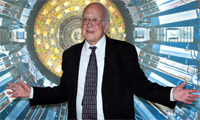
⦿ Sean Dempsey
Peter Higgs in 2013
|
|
2024 April 10
Peter Higgs
Frank Close
Peter Higgs (1929−2024) suggested in 1964 that the universe contains a universal field that can become manifest as particles, later called Higgs bosons.
The Higgs mechanism controls the rate of thermonuclear fusion and the structure of atoms and matter. Inspired by work on spontaneous symmetry breaking, it explains how equations that call for massless particles can give rise to particles with a mass. In the 1971 theory of the weak force, the W boson gains mass thanks to the Higgs mechanism.
Higgs pointed out that in certain circumstances spontaneously broken symmetry implied that a massive boson should appear. He was not alone, and similar ideas had already been articulated. Robert Brout and François Englert beat Higgs into print by a few weeks. Tom Kibble and two colleagues write a paper along similar lines weeks later.
CERN announced the discovery at the LHC of a particle "with Higgs‑like properties" in July 2012. Higgs shared the Nobel prize for physics in 2013.
AR An achievement like that makes for a satisfying life story. I still don't understand the math behind the Higgs mechanism. Being realistic, I probably never will.
|
|

|
|
2024 April 9
New AI Models
Financial Times
Meta and OpenAI are about to release new AI models capable of reasoning and planning, critical steps toward AGI. Meta will roll out its LLM Llama 3 in the coming weeks. OpenAI says its LLM GPT‑5 is coming soon.
Meta chief AI scientist Yann LeCun says reasoning lets an AI model search over possible answers, plan a sequence of actions, and build a mental model of the effect of its actions. Meta plans to embed its new AI model into WhatsApp and its Ray‑Ban smart glasses.
OpenAI chief operating officer Brad Lightcap: "We're going to start to see AI that can take on more complex tasks in a more sophisticated way. I think we're just starting to scratch the surface on the ability that these models have to reason."
AR Sounds promising. We're still on target for Singularity in 2029.
2024 April 8
UK in the World
Tom Fletcher
Ever since the 2016 referendum, the UK has wrestled with its national identity. It remains a member of NATO and the Five Eyes alliance and a permanent member of the UN Security Council. It still has the sixth-largest economy in the world and is a hub for finance and technology.
Former UK national security advisers, permanent secretaries, security chiefs, and ambassadors met recently in Oxford to debate how the UK must change its approach in a world where its security and prosperity depend heavily on rules and values being upheld.
The Foreign Office needs to be revamped. Alongside 2% of GDP for defence, the UK should devote 1% of GDP to international spending on climate, humanitarian development, and soft power.
AR A complete rethink of the UK place in the world is needed. My advice would be to rejoin the EU as a first step and then as a loyal member state to promote and defend the EU with the same passion Britain once showed to promote and defend its empire.
The British love for America needs recalibration. Today it is too largely unrequited, and anyway many EU members feel similar liking for America. UK membership of the EU need not be at the expense of special relationships with US and ANZAC allies.
|
|
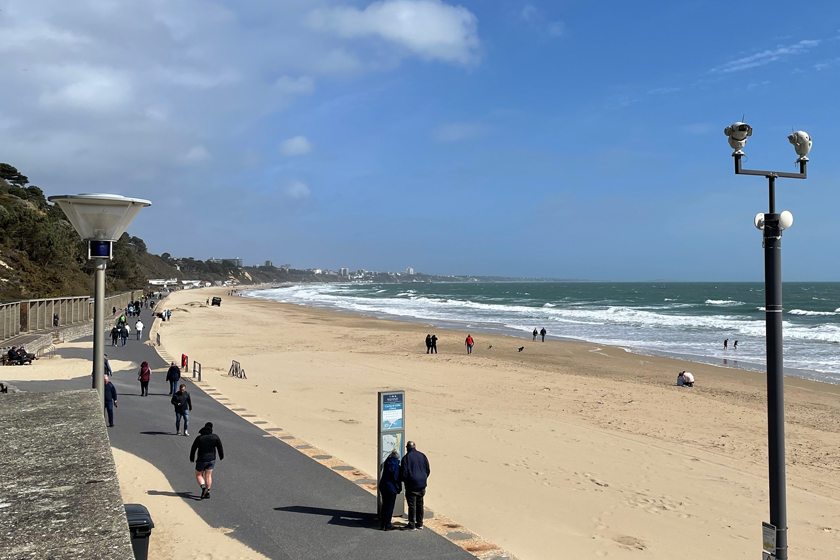
AR
Windy Sunday seafront with surveillance cameras
|
|

Beyoncé
Cowboy Carter
★★★★★
|
|
2024 April 7
UK Cannot Be Isolationist
David Miliband
Brexit was based on delusions. Britain is one of the richer countries and is a middle power in the global system, but its wealth, military assets, and reputation have all declined relative to others in the last decade. Geopolitical fragmentation is exacerbating global challenges.
Four critical questions:
1 Where we start: UK influence abroad has been badly affected by choices such as Brexit and grandiose posturing. The UK place in the world is defined by its mindset, so honesty is needed.
2 What we stand for: The Biden administration backs democracy versus autocracy. Democracy is not an organising principle for international relations. The international order is a legal order to prevent the abuse of power.
3 Our allies and alliances: The war in Ukraine has brought the EU and NATO closer together. The EU is shipping weapons to Ukraine and hosting 6 million Ukrainian refugees, is a major funder of international development, sits in the G20, and is a regulatory superpower in many areas. The UK needs a political and foreign policy relationship with the EU.
4 What we can afford: The UK defence budget of just over £50 billion is large by European standards but very small by US standards.
The global system is in flux. Britain needs to be at the table, not on the menu.
AR All true, from a British perspective. Brexit was an inexcusable folly. The next UK government should do all it can to reverse it.
2024 April 6
Black Hole Equation
Leah Crane
Stephen Hawking and Jacob Bekenstein calculated how much entropy there should be in a black hole. The entropy in a black hole is related to exactly how many microscopic states fit inside it.
Vijay Balasubramanian and his colleagues modelled the microstates inside a black hole and found a formula for counting all of these states. If black holes are quantum objects, some of their quantum states can be represented as combinations of other states, which makes them superfluous to describing the entropy of the black hole. Accounting for these quantum effects leaves a number of states inside the black holes that matches the Bekenstein−Hawking formula.
The space of states is big enough to preserve the information in the black hole. The question remains of how the information is read out when the black hole eventually evaporates.
AR This is extremely reassuring. The Bekenstein−Hawking formula seemed like inspired guesswork that lacked a deep theory behind it. Now we can go ahead more confidently to resolve the information "paradox" once and for all.
|
|
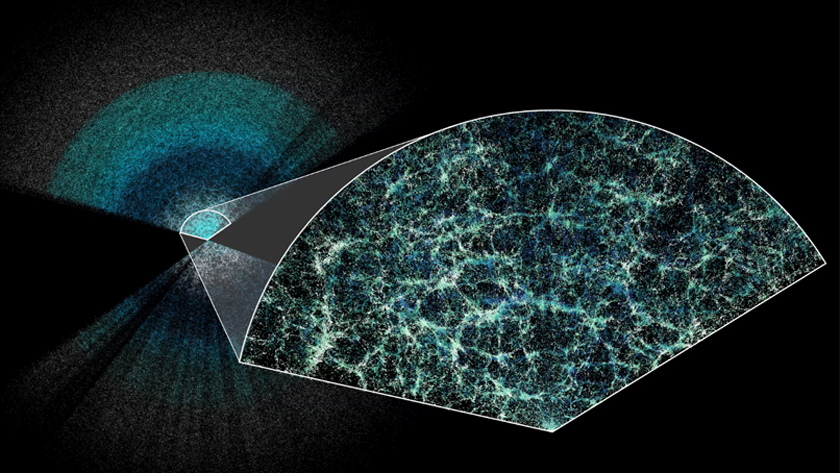
⦿ Claire Lamman/DESI Collaboration
DESI map of our universe to date: Earth at center of popout fan
|
|

|
|
2024 April 5
New 3D Cosmic Map
Nicola Davis
A 3D map of the cosmos showing more than 6 million galaxies from data collected by the Dark Energy Spectroscopic Instrument (DESI) lets us measure how fast the universe has been expanding.
The expansion of the universe is speeding up, but dark energy may not be constant in time. If dark energy were constant in time, the universe would expand forever. The map suggests otherwise.
The map is based on patterns in the distribution of galaxies made by baryon acoustic oscillations. The DESI team calculated precisely how fast the universe has been growing over the last 11 Gy.
London cosmologist Andrew Pontzen: "The new data, when combined with existing measurements, would seem to contradict the simplest possible explanations for dark energy."
Dark energy weakening?
Leah Crane
The largest 3D map of the universe ever made suggests dark energy may be weakening over time. The standard model of cosmology, ΛCDM, suggests the strength of dark energy should be constant.
DESI researchers examined the strength of dark energy by measuring the large-scale structure and distribution of galaxies in the cosmos, then combining data on supernovas.
The discrepancies between ΛCDM and the combination of supernova and DESI measurements range from 2.5 σ to 3.9 σ.
AR This is encouraging. Dark energy was always thoroughly mysterious, and the assumption that it was constant was supported only by ΛCDM orthodoxy, so predictions of accelerating cosmic expansion were speculative. Now we're agnostic again.
|
|

ECO
My Oxford alma mater (Exeter College, here seen from Ship Street) is 710 years old today
|
|
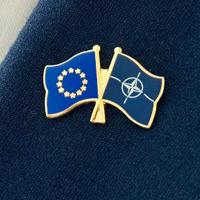
|
|
2024 April 4
NATO @ 75
European Commission
NATO is celebrating its 75th anniversary today! The EU and NATO have maintained a longstanding partnership, collaborating to foster peace and stability. Now, with new European members and unwavering unity for Ukraine, we stand stronger together.
Europe and America
Reuters
NATO secretary general Jens Stoltenberg: "Europe needs North America for its security. At the same time, North America also needs Europe. European allies provide world-class militaries, vast intelligence networks and unique diplomatic leverage, multiplying America's might."
Stoltenberg proposes a €100 billion fund to support Ukraine's military over five years.
Lithuanian foreign minister Gabrielius Landsbergis: "NATO's biggest battles to fight are still in the future, and we have to be ready for them."
AR NATO has been backing me all my life. Peter Apps' biography of NATO is a racy read and will be informative to readers who welcome a refresher course in geostrategic events over the last 75 years. I enjoyed it thoroughly and romped through it in just a few days.
|
|

|
|
2024 April 3
The Three-Body Problem
Tania Branigan
The opening scenes of the Netflix sci‑fi epic 3 Body Problem take us back to China during the Cultural Revolution in 1966.
Liu Cixin's trilogy The Three-Body Problem is a huge bestseller. The show takes liberties with his text. Replacing key characters with multiracial friends who studied physics together at Oxford annoys many in China, but the show is faithful to the historical scenes.
The Cultural Revolution was a time of extraordinary violence and unpredictability. Those years bred cynicism and fear, and Liu grew up in the Cultural Revolution. In the world he depicts, characters discover that generosity and humanity can be threats to survival.
In the Chinese text, the historical scenes appear partway through. Liu said his publishers feared censors. His depiction of a civilisation alternating between stable and chaotic eras evokes fears left by the Sixties, but instability and fragmentation are persistent anxieties in Chinese history.
Liu says everything his book shows as humanity faces annihilation has sources in what he experienced.
AR I still haven't read the trilogy, despite having been prompted years ago to do so by Barack Obama. The Netflix transposition of much of the action to Oxford seemed strained to me, but I can see the point in terms of western audiences.
|
|

|
|
2024 April 2
Money
Stuart Kells
In 2008, Niall Ferguson published The Ascent of Money. He said the foundation of modern finance is fractional reserve banking.
But banks don't lend out money from reserves or deposits or existing funds. When you borrow money and your bank credits your loan account, the account balance is created anew. As you repay the loan principal, the money created at the time of the loan gradually disappears. The account balance is all there is, an IOU from the bank.
Just as banks lend money into existence as IOUs, governments spend it into existence. As with money created through bank lending, money created through government spending does not persist and circulate indefinitely through the economy. The persistence error prevents us from understanding debt, taxes, and monetary policy.
We need to think differently about the nature of money. We can then rethink letting big banks earn enormous profits.
AR This sounds radical, but it's not. Fiat money is what it's all about. Lending money is giving credit. It's a moral transaction. The accounting currency deludes us into thinking the logic is precise enough for fine mathematics, but it's not.
At the highest levels of the financial system, billions and trillions come and go like pocket change. Only for the smaller punters do the bankers use their spreadsheets to exert a pressure enabled by a cultivated moral distance.
|
|

|
|
2024 April 1
God Chatbots
Webb Wright
QuranGPT, Bible.Ai, Gita GPT, Buddhabot, and other chatbots offer divine wisdom on demand.
Many religious communities are embracing AI, but theologians have concerns about how chatbots undermine the spiritual benefits achieved by direct engagement with religious texts.
LLMs expedite biblical translation and the study of linguistic variations among Bible translations. They can also be used against religious orthodoxy by prompting new ways of thinking. But they pose dangers when used to answer sensitive questions.
Zurich anthropologist Beth Singler urges a hermeneutic of suspicion.
Wearable AI
Callum Bains
AI-powered consumer devices are about to compete with smartphones.
▸ The Ai Pin from Humane attaches to your shirt via a magnet. It can send texts, make calls, take pictures, and play music. A laser projects an interface on to your hand, and a chatbot responds to voice commands.
▸ Meta offers AI-powered smart glasses in partnership with Ray-Ban. They connect to a chatbot for voice commands.
▸ The Pendant from Rewind will dangle around your neck and record everything you hear and say during the day, before transcribing and summarizing it for later.
▸ Deutsche Telekom has showcased a smartphone concept that relies solely on AI and has no apps.
Former Microsoft chief executive Bill Gates: "You'll simply tell your device, in everyday language, what you want to do."
AR All interesting stuff, but pins and pendants don't add up to much. New form factors must be great to succeed, and losing the screen is a big minus. Smart glasses are the way to go − but Google's experience with "glassholes" in 2013 is sobering. New social norms are needed first.
As for godbots, I see a future for them only if they're paired with wellness apps. That combination, with new interface tech going beyond a form factor, shows promise. Otherwise, we get a crucifix around the neck that holds an AI interface for wellness and moral support.
|
|































































